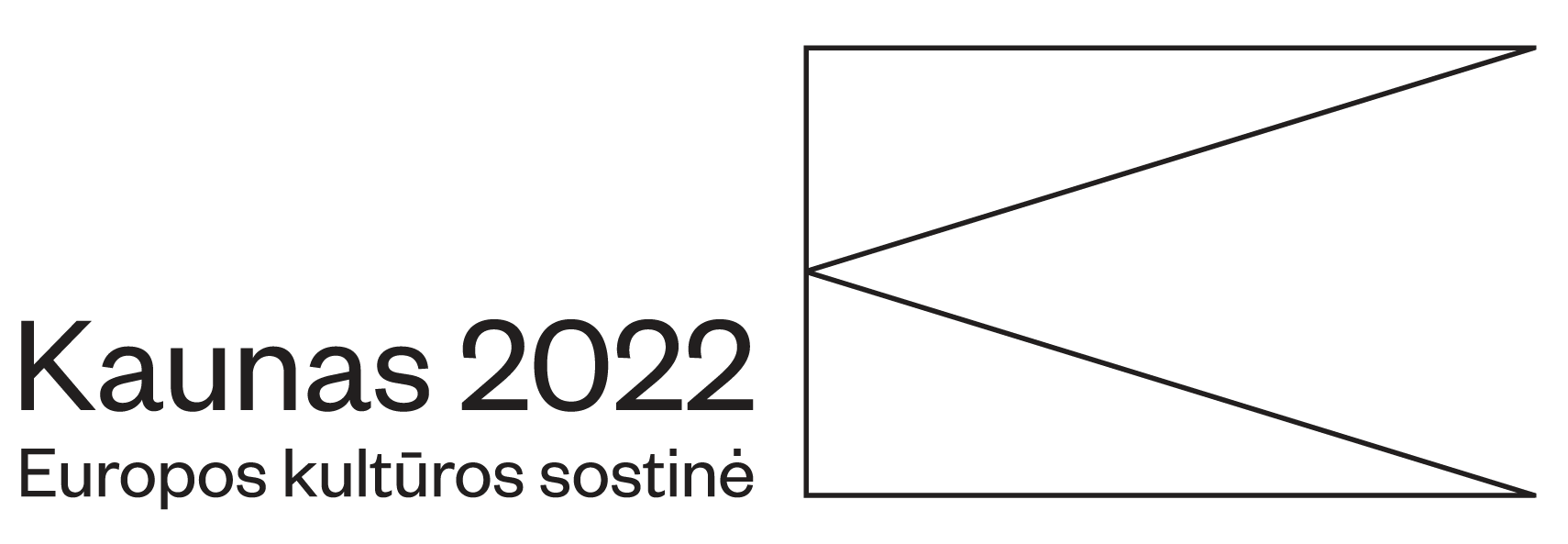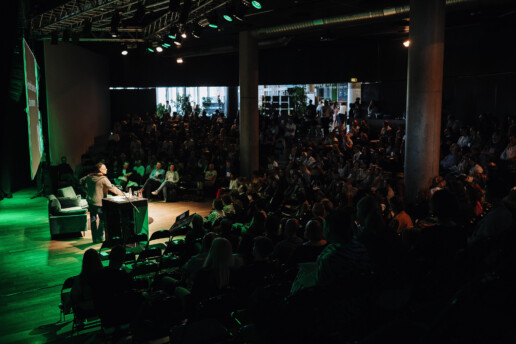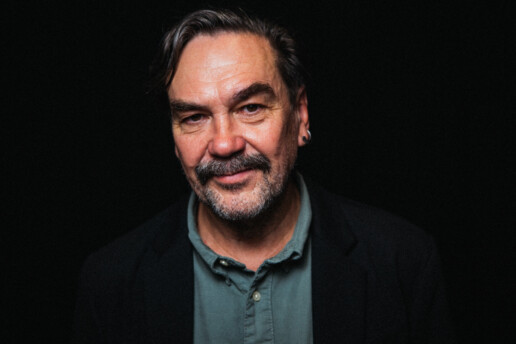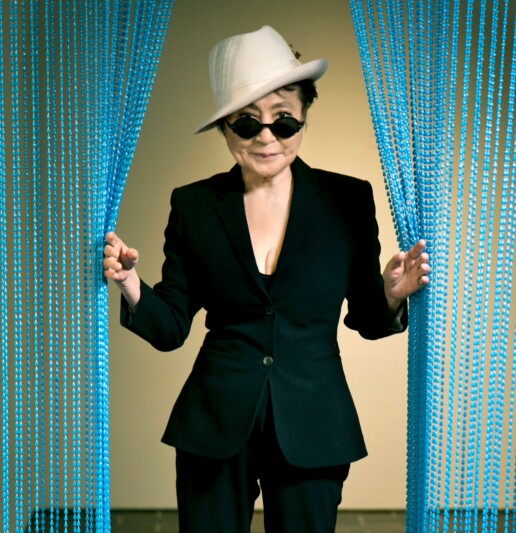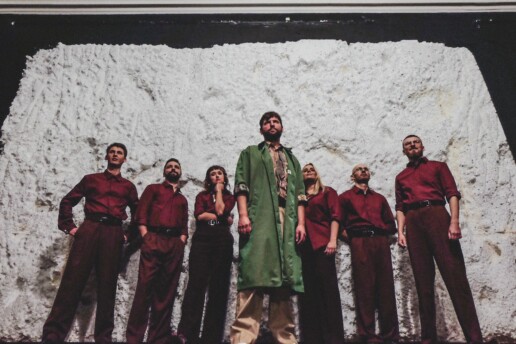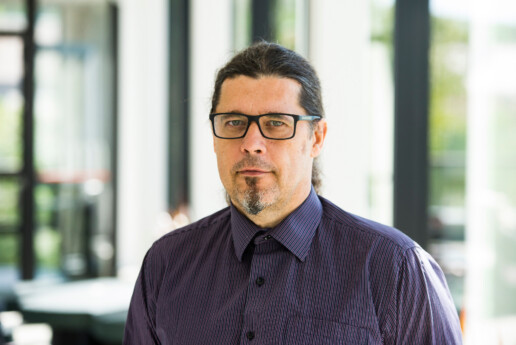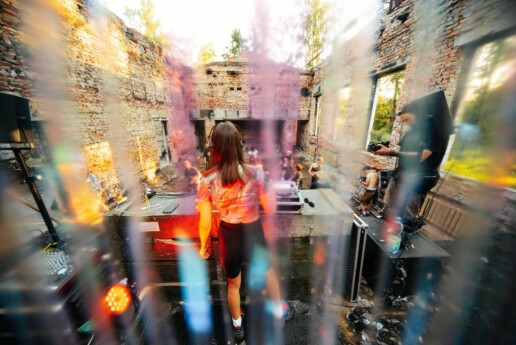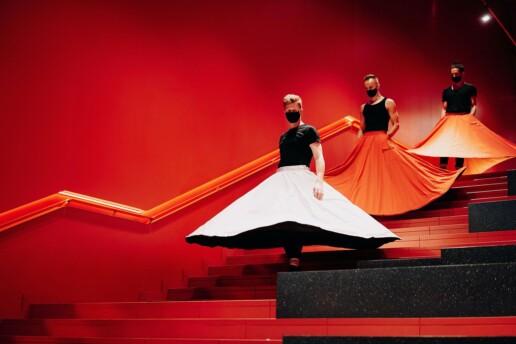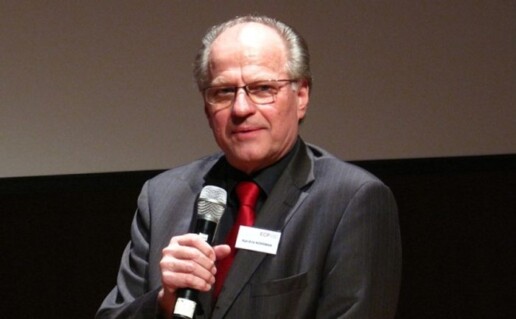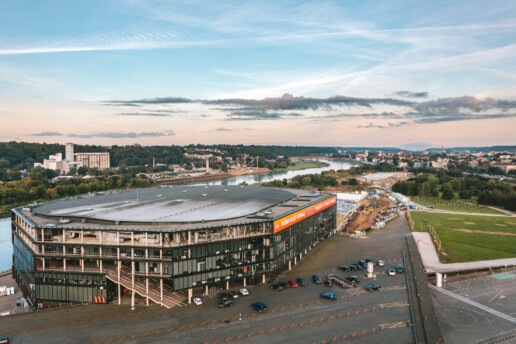Didžiausias Lietuvoje Litvakų kultūros forumas burs kultūros ir istorijos mylėtojus
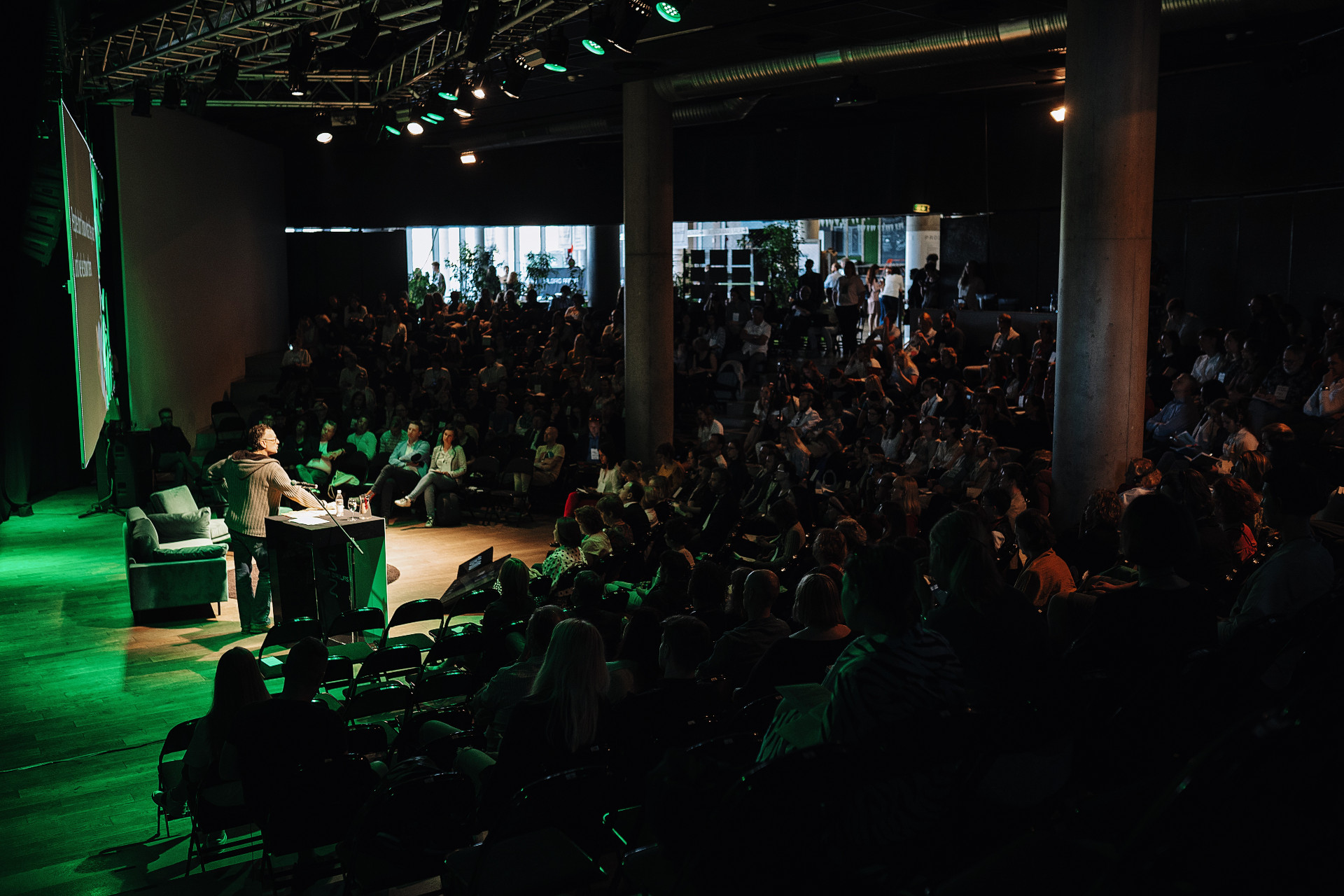
Kultūros entuziastai rugsėjo 29–30 d. laukiami Kaune, VDU Didžiojoje salėje. Čia vyks pirmasis Litvakų kultūros forumas. „Kaunas 2022“ programos „Atminties biuras“ inicijuotą renginį lydės marga renginių programa, pabirusi po įvairias miesto vietas.
Akademikai, istorikai, muziejininkai, švietimo ekspertai, meno pasaulio atstovai, bendruomenių nariai – forumas suburs dešimtis prelegentų, atstovaujančių įvairioms sritims. Ne vienas iš Lietuvos kilęs svečias savo tėvų žemėje lankysis pirmąkart gyvenime – šios patirtys renginyje, keliančiame klausimą, ką reiškia būti litvaku, itin svarbios. Kitos forumo diskusijų ašys – kultūra ir menas kaip raktas į istoriją ir atminties įamžinimas kaip būdas kurti geresnę ateitį, skatinti atvirumą ir dialogą.
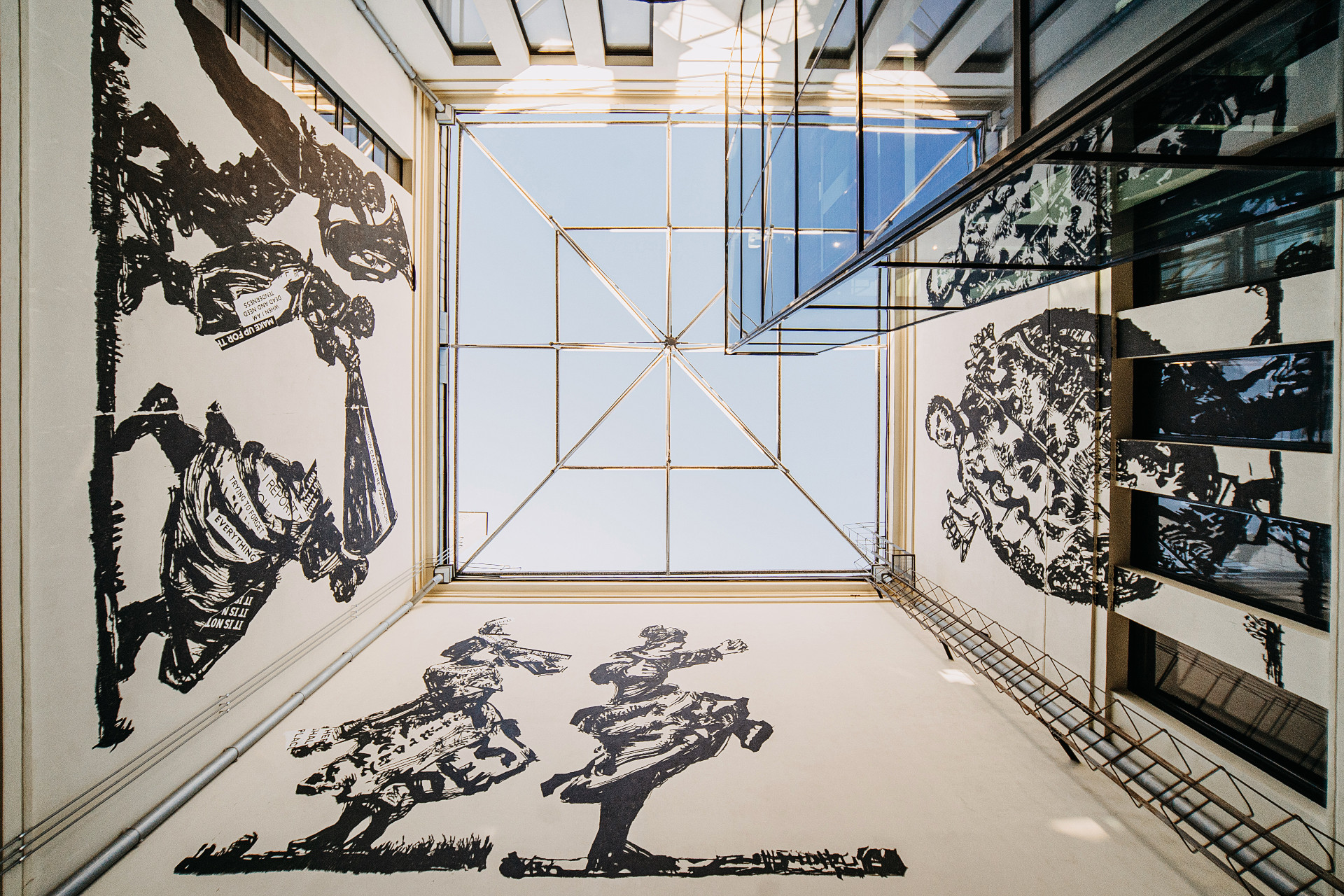
Sugrįžti į protėvių žemę
Kaip teigia „Kaunas 2022“ programos „Atminties biuras“ kuratorė Daiva Price, Litvakų kultūros forumas tarsi apibendrina šios programos pastangas ir projektus, kurių pradžia siekia 2017 metus. „Penkerius metus bandėme priminti, kad Kaunas visada buvo daugiatautis miestas, o žydiškoji, litvakiškoji jo istorijos dalis sudaro svarbią šio miesto tapatybės dalį. Įvairiais meno projektais kalbėjome apie sudėtingus miesto istorijos puslapius, II pasaulinio karo istoriją ir Holokausto tragediją. Taigi forumo metu bandysime apibendrinti – kas yra ta litvakiškoji kultūra, litvakiškoji tapatybė? Kaip menas mums padeda suprasti istoriją, kaip menas padeda prisiminti?“, – intriguoja kaunietė.
Anot kuratorės, svarbu, kad į šį dialogą apie mūsų istorijos žaizdas įsitraukė ne tik lietuviai menininkai, projektas paskatino į savo protėvių žemę sugrįžti litvakus menininkus ir mokslininkus. Vienas jų – garsiosios kauniečių Soloveičikų giminės palikuonis, litvakas, Jeilio universiteto prezidentas prof. Peter Salovey. „Forumas – puiki proga dar kartą pakalbėti apie mūsų bendrą istoriją, susitikti ir pasvarstyti apie ateitį, padiskutuoti, kokios ateities norime šiame mieste, kaip (ar) menas gali geriau padėti suprasti istoriją ir mokytis iš jos klaidų“, – įsitikinusi D. Price.
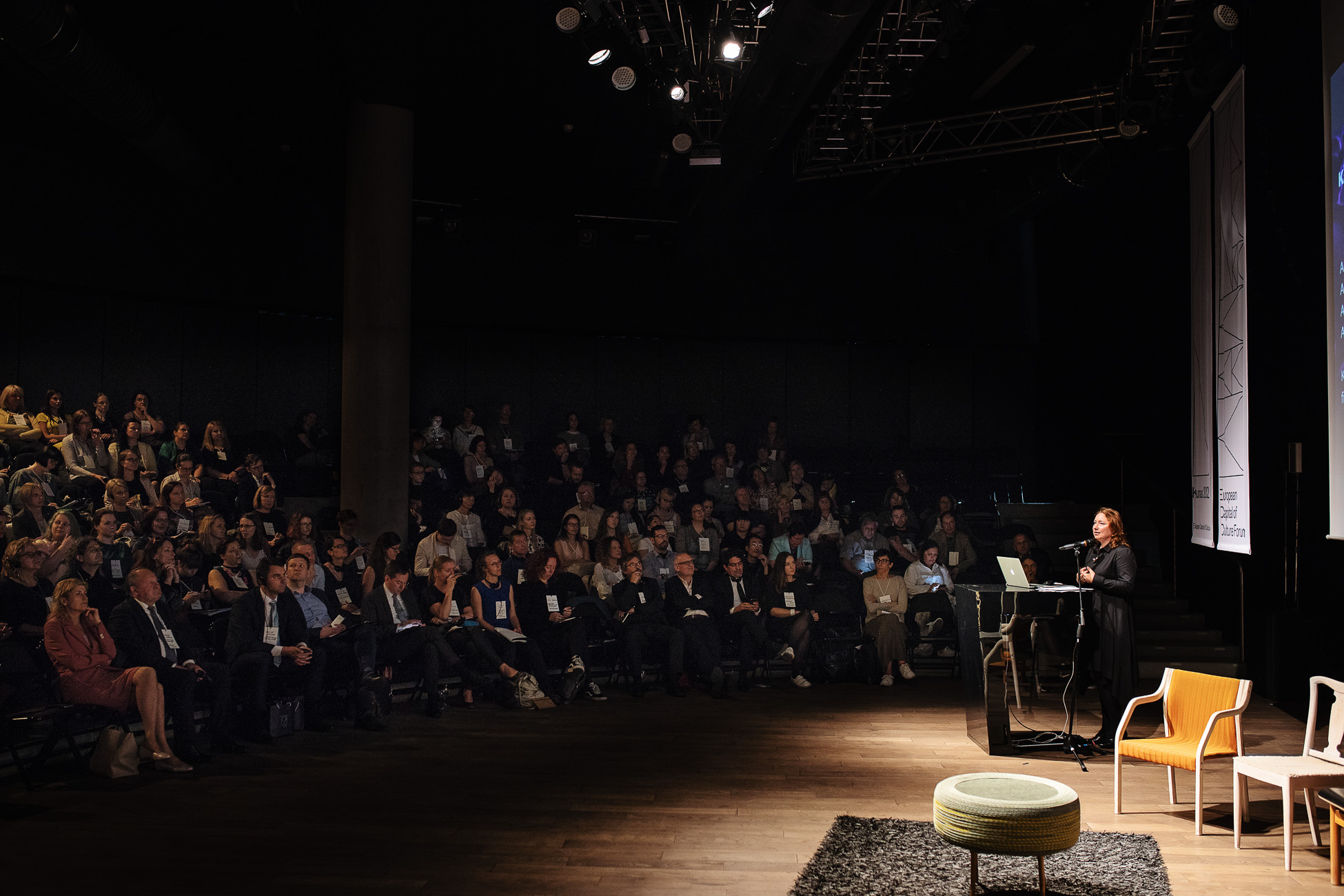
Akademininio ir meno pasaulių atstovai
Savo asmenine ir profesine patirtimi forume dalinsis tokie Lietuvos ir pasaulio kūrėjai kaip rašytoja ir meno kuratorė Paulina Pukytė, Lina Šlipavičiūtė-Černiauskienė (projektas „Sienos prisimena“), mezuzas į Kauno gatves sugrąžinusi Jyll Bradley (JK), Kaune kūrusios rašytojos Lėjos Goldberg knygos „Nuomojamas butas“ leidėja, rašytoja Daiva Čepauskaitė ir dailininkė Sigutė Chlebinskaitė bei daugelis kitų.
Akademinei visuomenei atstovaus atminties politikos Rytų Vidurio Europoje tyrėja prof. Violeta Davoliūtė bei gausus būrys litvakų istoriją ir identitetą tyrinėjančių mokslininkų iš viso pasaulio. Tai Brandeis universiteto profesorius emeritas, daugelio monografijų autorius prof. Antony Polonsky (PAR/JK), socialinės psichologijos profesorius, Jeilio universiteto prezidentas, VDU garbės daktaras Peter Salovey (JAV), psicholingvistė prof. Tsvia Walden (IL) ir kt.
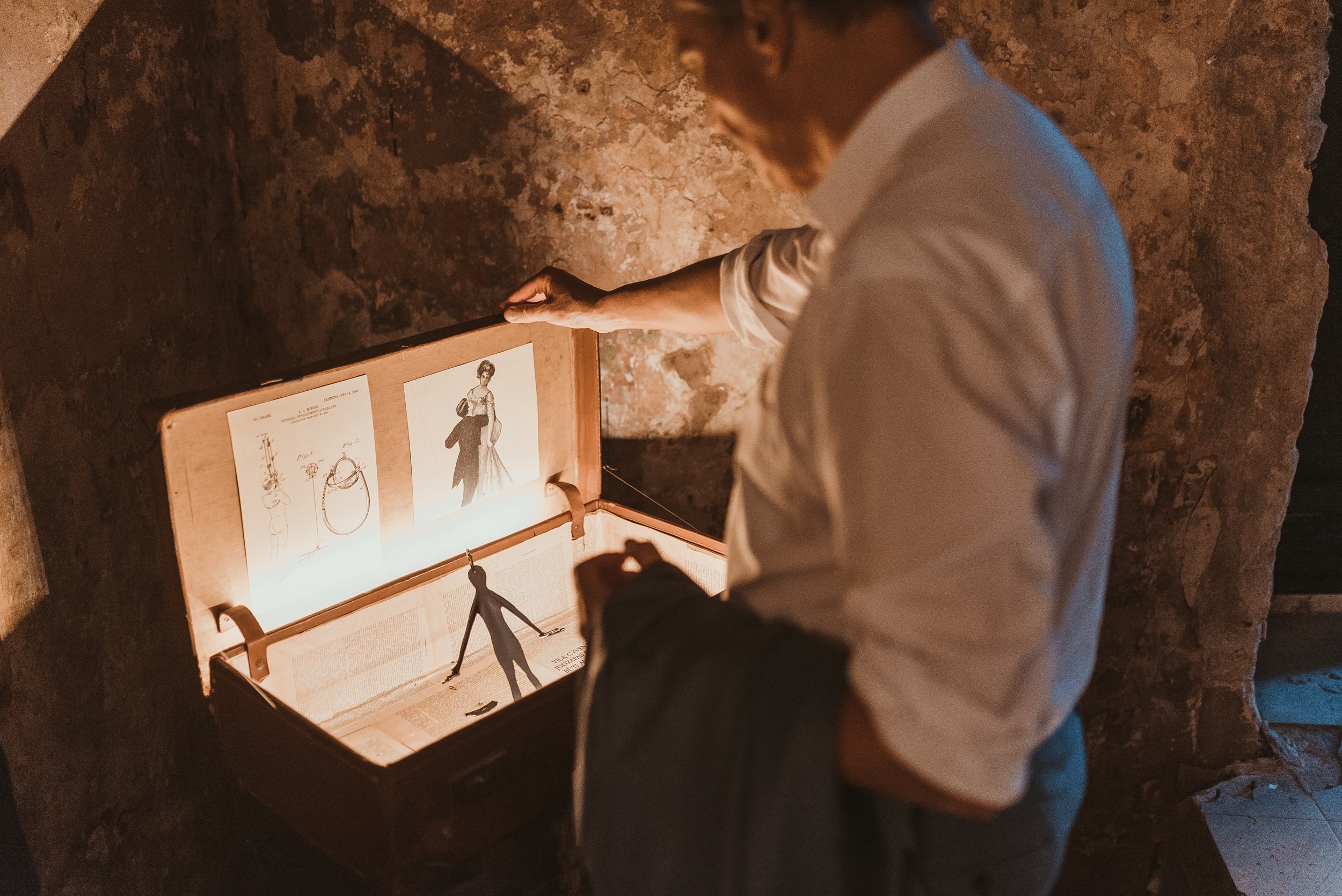
Turtinga renginių programa – visame Kaune
Forumo dienomis dalyviams ir svečiams bus pristatomi specialūs muzikiniai projektai „Žalgirio“ arenoje. Rugsėjo 29 d. – koncertas „Nuo pelenų iki šlovės: Kauno ir Vilniaus getų muzikantai Niurnbergo Operoje (1946)“. Rugsėjo 30 d. ir spalio 1 d. – kompozitorius Philipo Millerio ir menininkės Jenny Kagan „Kauno kantata“. „Kantatoje“ muzikos, tekstų ir vaizdų kalba pasakojama sudėtinga istorinių perversmų, Holokausto, trėmimų ir asmeninių traumų istorija bei jos palikti pėdsakai kartų likimuose, atskirų žmonių gyvenimuose. „Kantatą“ atliks virš 200 muzikantų, Kauno miesto simfoninis orkestras, chorai ir ansambliai. Ši akistata su istorija tampa kaip niekada aktuali šių dienų kontekste.
Litvakų kultūros forumo metu Kaune įvyks ne vienas netikėtas meninis įvykis, padėsiantis praplėsti diskusijų kontekstą ir pratęsti pokalbius. Rugsėjo 28 d. VDU centriniuose rūmuose bus pristatyta Izraelyje gimusio litvako Michael Shubitz fotografijų paroda „Sugrąžinti į Kauną“, o LSMU Emanuelio Levino centre laukia koncertas-pasakojimas „Muzikinė geldutė“. Jo metu tarptautinė menininkų grupė atliks originalią muziką, įkvėptą žydų liaudies dainų, apeiginės muzikos bei profesionaliosios muzikos kūrinių motyvų.
Rugsėjo 29 d. Forumo metu VDU Didžiojoje salėje vyks net du koncertai – pianisto Aleksandr Paley ir klarnetininko Karolio Kolakausko klezmerių muzikos pasirodymas bei koncertas „Po Šagalo“. Neseniai miręs Anatolijus Šenderovas apie šį kūrinį sakė: „[Jame] apstu simbolių – klarnetas primena buvusį žydų gyvenimą Europoje, mušamieji ir styginių kvartetas yra lyg biblijinio pasaulio aliuzija.“ Šenderovo kūrinį atliks styginių kvartetas „Chordos“, klarnetistas Algirdas Žiūra ir perkusininkas Arkadijus Gotesmanas.
Renginių programoje – ir jau veikiančios bei itin didelio miesto gyventojų ir svečių susidomėjimo sulaukiančios parodos, kaip William Kentridge „Tai, ko nepamename“ ir Jenny Kagan „Iš tamsos“.
Forumo dalyviai taip pat bus kviečiami apsilankyti Kauno tvirtovės IX forte, kuriame menininkai Bruce Clarke (FR) ir Tebby W. T. Ramasike (NL) pristatys vizualaus meno ir šiuolaikinio šokio kūrinį „Ecce homo: tiems, kurie liko, ir tiems, kurie išvyko“.
Litvakų kultūros forumo globėja – Ministrė Pirmininkė Ingrida Šimonytė. Garbės globėjai – prof. Liudas Mažylis ir Lietuvos žydų bendruomenės pirmininkė Faina Kukliansky. Partneriai – Vytauto Didžiojo universitetas ir Lietuvos žydų bendruomenė.
Visą Litvakų kultūros forumo programą rasite čia.
Neeilinės „Šetenių skaitymų“ dovanos: susitikimai su Jurijumi Andruchovyčiumi ir Svetlana Aleksijevič
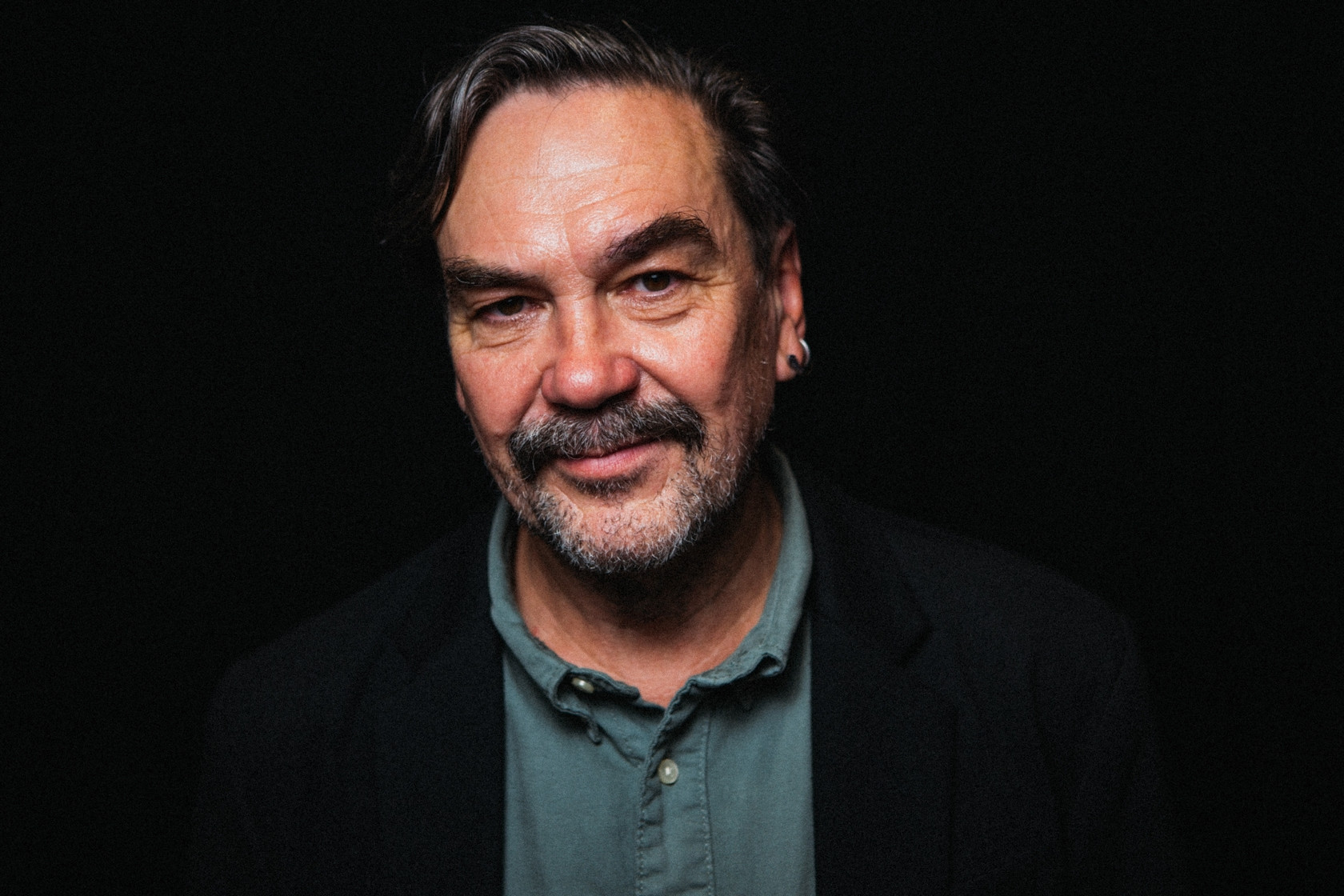
Vytauto Didžiojo universiteto organizuojamas tarptautinis rašytojų ir knygų festivalis „Kauno literatūros savaitė“ rugsėjo 15–22 d. sukvies į naują renginių ciklą. Gražia pavasario tradicija tapęs renginys plečiasi: nuo šiol rugsėjį žymūs pasaulio rašytojai ir intelektualai atvyks į Lietuvą gvildenti svarbiausių šiandienos Europos ir pasaulio klausimų – į literatūros vakarus ir pranešimų ciklus suburs „Šetenių skaitymai“.
„Kas yra Šeteniai tikriausiai visi literatūra besidomintys lietuviai žino – tai Česlovo Milošo (Czesław Miłosz), vienintelio šalyje gimusio Nobelio premijos laureato, gimtinė. Į „Šetenių skaitymus“, skirtingai nei į mūsų pavasario festivalį, kviečiame ne būrį rašytojų, o vienu metu po vieną žymų pasaulio autorių. Č. Milošas nebuvo idėjos „menas menui“ šalininkas: jo paskaitos, pranešimai, esė, gvildenantys aktualius ne tik literatūros, bet ir visuomenės bei politikos klausimus, sudaro svarbią palikimo dalį. Taigi, jis tinkamas patronas renginiui, kuriame vyksta ne tik literatūriniai skaitymai, bet ir intelektualios diskusijos, svarstomos įžvalgos ir klausomasi paskaitų“, – teigė festivalio iniciatorius ir meno vadovas, rašytojas ir vertėjas Laurynas Katkus. Anot jo, visuomenė yra pavargusi nuo paviršutiniško bėgimo nuo knygos prie knygos, nuo autoriaus prie autoriaus, tad atėjo metas lėtam skaitymui, atidžiam įsiklausymui ir grįžtamajam ryšiui.
Pirmuosius „Šetenių skaitymus“ inauguruos net du garsūs autoriai iš Vidurio–Rytų Europos. „Č. Milošo svarstytas Europos padalijimas tarp Rytų ir Vakarų ir iš to kylantis ypatingas Vidurio Europos tapatybės klausimas šiandien įgauna naują aktualumą. Ukrainos karo kontekste atgyja skaudžios Baltijos šalių, Lenkijos ir kitų regiono visuomenių istorinės patirtys, kurioms deramos vietos Europos moraliniame ir kultūrinės vaizduotės žemėlapyje ieškojo Č. Milošas ir daugelis kitų iš šio regiono kilusių intelektualų, suvokusių būtinybę Vakarams kalbėti savo autentišku balsu ir taip žadinti europiečių sąmoningumą“, – naujojo skaitymų ciklo svarbą ir atvykstančių svečių pasirinkimą aiškina „Kauno literatūros savaitės“ vadovė, VDU Humanitarinių mokslų fakulteto dekanė Rūta Eidukevičienė.
„Rugsėjo 15-ąją Kaune ne vieno lietuvių rašytojo pažįstamas ir mėgstamas Jurijus Andruchovyčius (Jurij Andruchovyč) atviroje paskaitoje pristatys specialiai šiai progai parašytą esė „Pavergta beprotybė: antipasaulis“, kurioje Ukrainos pasipriešinimo agresijai fone plėtos Č. Milošo „Pavergto proto“ įžvalgas. Kitą dieną iš Kauno veiksmas kelsis į Č. Milošo gimtinę, čia J. Andruchovyčius susitiks su literatūros lauko ir universiteto bendruomene. Rugsėjo 21–22 „Šetenių skaitymais“ savo viešnagę šalyje pradės Nobelio literatūros premijos laureatė Svetlana Aleksijevič (Svetlana Alexievich)“, – teigė L. Katkus. Šio vizito Kaune metu S. Aleksijevič taip pat bus įteiktos VDU Garbės daktaro regalijos.
Kviečiame iki rugsėjo 14 d. registruotis į susitikimą su J. Andruchovyčiumi (https://bit.ly/jurij-andruchovis-kaune). Vietų skaičius ribotas. Renginys vyks rugsėjo 15 d. nuo 18 val. Kauno menininkų namuose (V. Putvinskio g. 56).
Susitikimas su S. Aleksijevič vyks rugsėjo 22 d. nuo 18 val. Vytauto Didžiojo universiteto Didžiojoje salėje (S. Daukanto g. 28).
Daugiau informacijos apie „Šetenių skaitymus“: www.literaturossavaite.lt bei https://www.facebook.com/literaturossavaite/. Tarptautinis rašytojų ir knygų festivalis „Kauno literatūros savaitė“ yra „Kaunas – Europos kultūros sostinė 2022“ programos dalis.
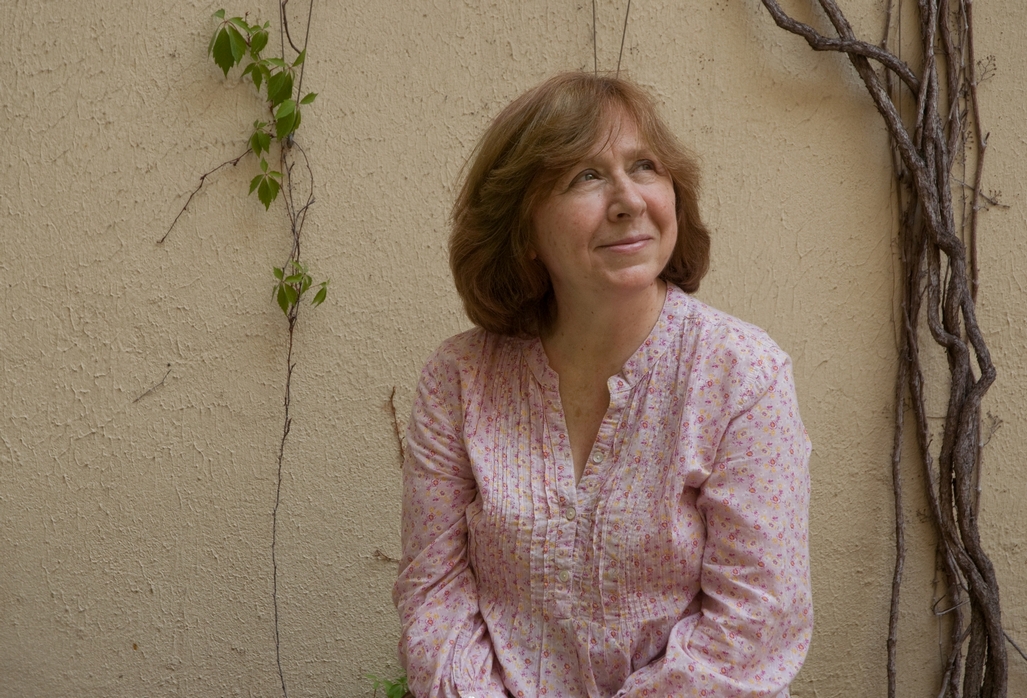
Poetas, prozininkas ir eseistas J. Andruchovyčius gimė ir gyvena Vakarų Ukrainoje, Ivano Frankivske. Po TSRS žlugimo jis ėmėsi radikalaus ukrainiečių literatūros atnaujinimo ir šiandien kartu su Serhijumi Žadanu yra pasaulyje žinomiausias šalies rašytojas. Šokiruojanti ir mąsli jo kūryba išversta į visas pagrindines pasaulio kalbas, apdovanota daugeliu premijų, o jo romanas „Dvylika ratilų“ išverstas ir į lietuvių kalbą.
Rašytojas teigia, kad jis labai mėgsta ir vertina Č. Milošą, ypač jo keltą Vidurio Europos idėją. „Šetenių skaitymuose“ jis pristatys specialiai šiai progai parašytą esė, įkvėptą Č. Milošo knygos „Pavergtas protas“. Rusijoje įsigalint naujai „pavergto proto“ atmainai, Milošo totalitarizmo analizė vėl tampa nepaprastai aktuali ir verta naujų apmąstymų.
Svetlana Aleksijevič gimė tame pačiame mieste kaip ir J. Andruchovyčius, Ivano Frankivske. S. Aleksijevič ypač domėjosi ir rašė apie dramatiškus sovietmečio įvykius ir savosios kartos patirtis – karą Afganistane, Sovietų Sąjungos griūtį, Černobylio katastrofą ir jos padarinius, o pastaraisiais metais išgarsėjo kaip aktyvi Baltarusijos diktatūrinio režimo kritikė. 2000-aisiais dėl politinio persekiojimo rašytoja buvo priversta išvykti iš šalies, vėliau grįžo, tačiau 2020-aisiais numalšinus Baltarusijos revoliuciją vėl paliko tėvynę. S. Aleksijevič sukūrė savitą dokumentinės literatūros žanrą, kurį vadina „balsų romanu”. Pagrįstas šimtais interviu, jis leidžia iš autentiškų pasisakymų sukurti plačią gyvenimišką ir dvasinę dabarties panoramą.
S. Aleksijevič knygos išverstos į daugiau nei penkiasdešimt kalbų. Lietuviškai pasirodė net penkios jos knygos – „Paskutinieji liudytojai“, „Karo veidas nemoteriškas“, „Laikas iš antrų rankų“, „Černobylio malda“, „Cinko berniukai“. Pagal pastarąsias dvi knygas režisierius Eimuntas Nekrošius sukūrė teatro spektaklį.
Kaune – menininkus ir mokslininkus jungianti modernizmo konferencija: kontroversiškos temos ir pasaulinio garso vardai
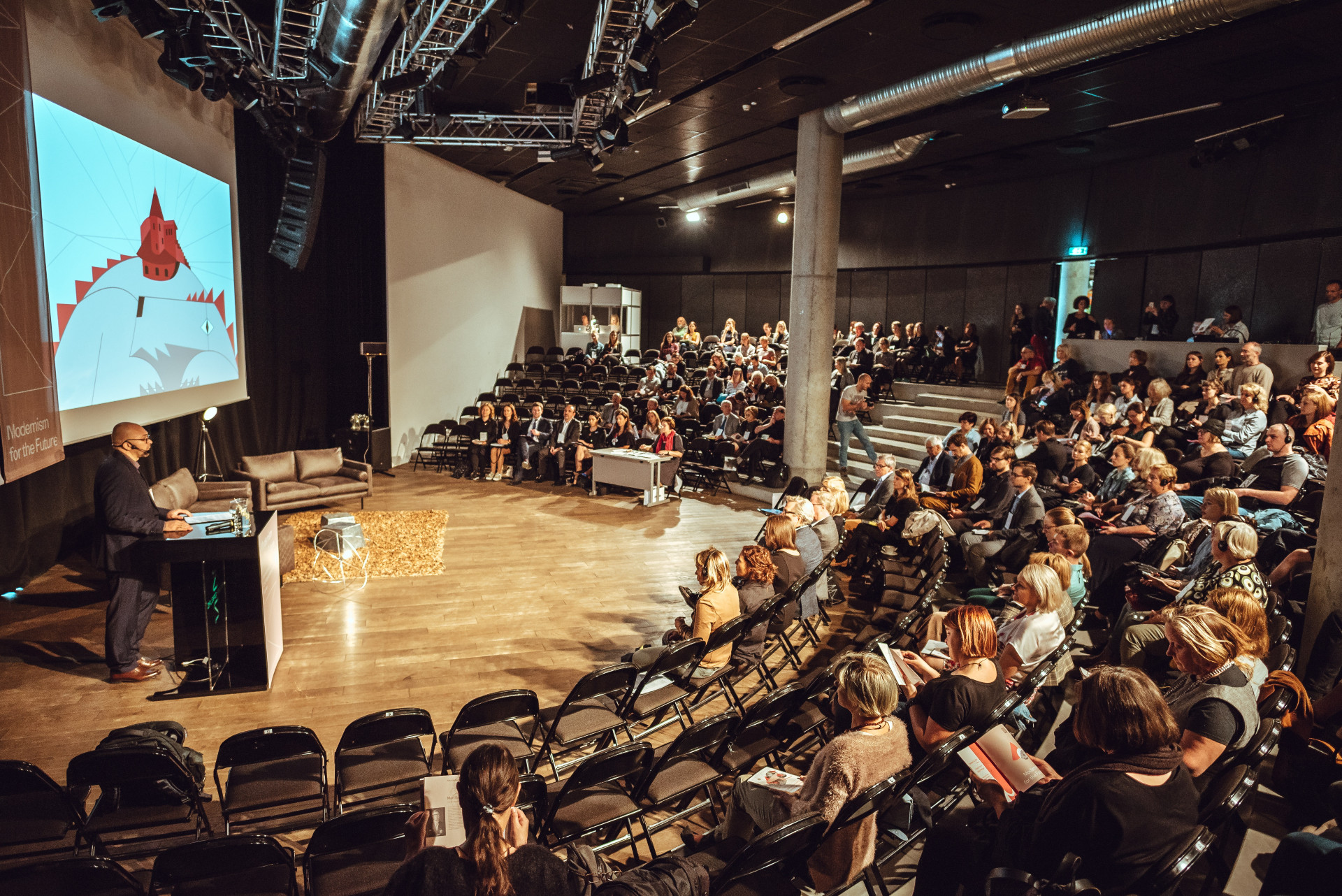
Optimistiškąją Kauno modernizmo pusę visam pasauliui atskleidusi „Kaunas 2022“ programa „Modernizmas ateičiai“ pamažu artėja link pabaigos. Už nugaros – daug vertingų patirčių dovanojusi kelionė, kurios rezultatas – šimtai įsitraukusių kauniečių ir kultūros organizacijų, parodos, renginiai ir net unikalaus filmo premjera. Jau rugsėjo 21-22 d. programa kvies leistis į paskutinį modernistinį nuotykį – konferenciją „Modernizmas ateičiai. Interpretacijos“.
Daugiau nei 20 pranešėjų iš viso pasaulio, kontroversiškos temos, socialiniai klausimai, parodos ir dar daugiau – dvi dienas truksiančiame renginyje bus siekiama apibendrinti Kauno patirtį bei tęsti diskusiją apie kūrybišką paveldo interpretavimą. Anot konferencijos organizatoriaus Vaido Petrulio, renginys skirtas ne tik specialistams ar architektūros lauko atstovams, bet ir plačiajai auditorijai: „Šios konferencijos metu norime praplėsti paveldo sąvoką – parodyti, kad tai ne tik istoriniai pastatai ar biurokratinės sampratos, bet ir konceptas, inspiruojantis šiuolaikinius kultūrinius procesus.“

Konferencijoje – žymūs vardai ir „nepatogios“ temos
Pirmoji konferencijos diena kvies reflektuoti apie vietines patirtis ir tai, ko pavyko pasiekti besiruošiant ir švenčiant Europos kultūros sostinės metus – bus pristatomi „Kaunas 2022“ ir partnerių kurti bei įgyvendinti projektai. Interaktyvus paviljonas „Archi/Textūra“ supažindins su trejus metus trukusiais architektės Rasos Chmieliauskaitės ir meno teoretiko dr. Justino Kalinausko tyrimais, atliktais kartu su Lietuvos aklųjų ir silpnaregių sąjungos bendruomene. Parodoje „Modernizmo interpretavimas – dizainas ir vizualieji menai“ bus pristatomas metus trukęs tyrimas, įgyvendintas kartu su kuratoriais iš Marselio Laura Serra ir Maxime Forest. Remiantis interaktyviu dizaino dirbtuvių procesu projekto dalyviai kūrė savas, autentiškas Kauno tarpukario ir pokario modernizmo architektūros interpretacijas – nuo tekstilės dizaino iki grafikos darbų, (video)instaliacijų ar baldų. Kauno menininkų namuose regioniniame ICOMOS ISC20C seminare: „Naujosios nacionalinės valstybės XX a. istorinių tematikų sistemoje“ bus diskutuojama apie paveldosaugos procesą kaip kultūrinio įgalinimo veiksmą, kuris priklauso nuo mūsų puoselėjamo pasakojimo, nuo nuolat kintančio emocinio santykio su fiziniu artefaktu.
„2018 m. vykusioje pirmoje tarptautinėje konferencijoje „Modernizmas ateičiai“ didžiausias dėmesys buvo skirtas modernizmo paveldo vertės suvokimui ir Kauno unikalumo paieškoms, ypač pasitelkiant užsienio šalių patirtis. Šiais metais gerosiomis patirtimis jau galime pasidalinti ir mes patys – juk penkerius metus programos rėmuose veikė šimtai miestiečių ir rajono gyventojų, dešimtys kultūros organizacijų ir menininkų,“ – pasakoja „Kaunas 2022“ programos „Modernizmas ateičiai“ kuratorė Viltė Migonytė Petrulienė.
Anot V. Petrulio, antroji diena, skirta užsienio pranešėjams, pasiūlys itin daug netikėtų, įtraukiančių temų, apie kurias paveldo kontekste kalbama retai. „Tądien bus galima išgirsti ne tik apie architektūrinius, bet ir apie kultūrinius, meninius, socialinius paveldosaugos kontekstus. Pavyzdžiui, menininkų duetas Sandi Hilal ir Alessandro Petti atkreips dėmesį į šiandien itin sudėtingą pabėgėlių situaciją – jie pasiūlė į UNESCO pasaulio paveldo sąrašą įtraukti pabėgėlių stovyklas. Tuo tarpu Niujorke gyvenantis menininkas, architektas ir paveldosaugininkas Jorge Otero-Pailos papasakos apie eksperimentinę paveldosaugą ir kvies atkreipti dėmesį į materialaus pavidalo neturinčius, tačiau miesto autentiškumą kuriančius artefaktus – garsus, kvapus, miesto dulkes bei kitus aspektus, kurie netradiciniais būdais kuria vietovės identitetą. Netrūks ir nepatogių, net kontroversiškų temų – nuo Ukrainoje vykstančio karo pėdsakų, iki ekologinių krizių, rasizmo ir kitų XX amžiaus kontroversijų, kurias būtina permąstyti įvertinant modernizmo palikimą.
Diskusijoje apie paveldo reikšmę šiandieniniame ir ateities pasaulyje dalyvaus tarptautines organizacijas reprezentuojantys paveldosaugininkai, menininkai, architektai, žurnalistai, žymiausių pasaulio universitetų mokslo darbuotojai bei tyrėjai: Uta Pottgiesser, Riin Alatalu, Nicolas Grospierre, Ievgenija Gubkina, Owenas Hatherley, Popi Iacovou, Edwardas Denisonas, Grzegorz Piątek ir daugelis kitų.
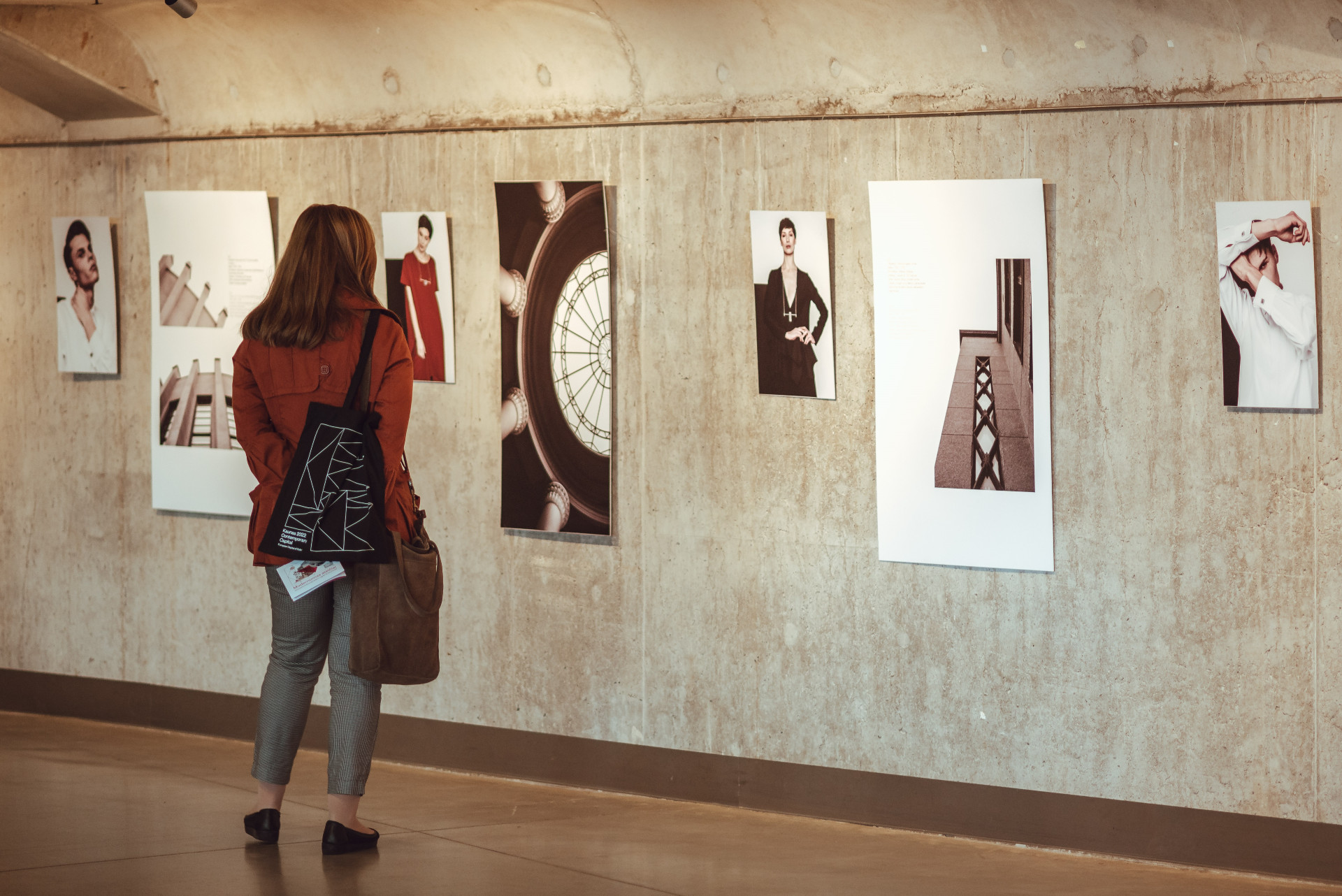
Konferencijos programoje – ir parodų atidarymai bei filmo premjera
Turiningoje programoje lauks ne tik paveldo srities profesionalų vedami seminarai bei diskusijos, bet ir kiti malonūs siurprizai. Rugsėjo 21 d. Iljinų šeimos name bus galima išvysti ekspoziciją „Interpretuotas Kauno modernizmas“, kurioje – Lietuvos ir užsienio menininkų, architektų, dizainerių bendrakūrybos rezultatai. Parodoje naujai į miestą pažvelgti kvies autentiškos Kauno tarpukario ir pokario modernizmo architektūros interpretacijos – nuo tekstilės dizaino iki grafikos darbų, (video)instaliacijų ar baldų.
Konferencijos metu vyks ir knygos „ARNO FUNKcionalizmas. Architekto Arno Funko (1898–1957) gyvenimas ir kūryba“ pristatymas. Arnas Funkas (Arno Funk) – vienas įdomiausių ir paslaptingiausių tarpukario Kauno architektų. Jo projektuoti namai pasižymi patikimais fasadais, išpuoselėtais interjerais ir detalėmis. Pramoniniams pastatams jis suteikė elegancijos, o visuomeniniams objektams – orumo.
Kartu su konferencija „Modernizmas ateičiai. Interpretacijos“ į Kauną taip pat sugrįš pasaulį apkeliavusi, Kauno modernizmui skirta juosta „Klostės“. 67 minučių trukmės juodai baltas nebylus režisierės Aideen Barry ir šimtų kauniečių kurtas filmas kvies klaidžioti po Kauno pastatus, žvalgytis po interjero detales, pastebėti nematomus miesto akcentus ir magiškas istorijas. Filmo „Klostės“ pristatymas vyks duris po rekonstrukcijos atvėrusiame „Romuvos“ kino teatre.
Programoje taip pat lauks Kauno fotografijos galerijos „Modernizmas ateičiai“ platformos rezidentų Alishia Farnan ir Zacharie Gaudrillot-Roy specialiai sukurtų kūrinių projekcijos bei fotografijos dirbtuvių dalyvių fotografijų paroda, kurią bus galima pamatyti Kauno medinukų pavėsyje – „Vingių dubingių“ kiemelyje.
Daugiau informacijos ir festivalio programą galima rasti čia.
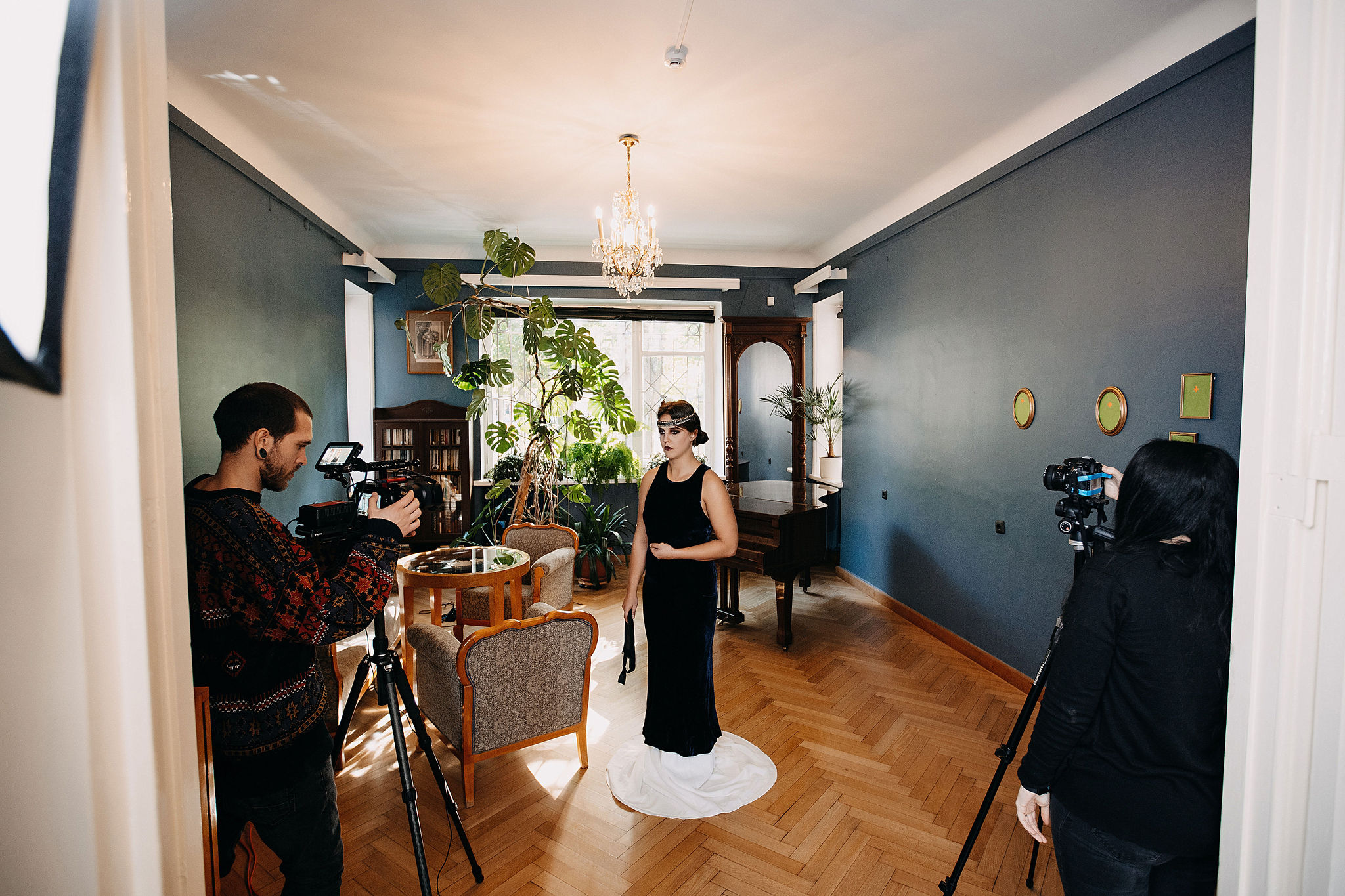
Europos kultūros sostinės programa Kaune ir Kauno rajone tęsiasi visus metus – 2022-aisiais suplanuoti šimtai tradicinių ir debiutuojančių renginių, tarp kurių parodos, festivaliai, spektakliai ir kitos veiklos, kuriamos vietos ir tarptautinių menininkų bei Kauno bendruomenių. Visą „Kaunas 2022“ programą rasite www.kaunas2022.eu ar mobiliojoje programėlėje.
Rugsėjį Kaune – pasaulinio garso vardai, premjeros ir parodų atidarymai: ko nepraleisti?

Prasidėjęs pirmasis rudens mėnuo ir vėl kviečia sugrįžti į kino, teatro ir koncertų sales. Rugsėjį numatoma ir ypatingai daug Europos kultūros sostinės premjerų: nuo modernizmui skirtos kino juostos „Klostės“ pristatymo iki ilgai lauktos „Kauno kantatos“ ir menininkės Yoko Ono parodos atidarymo. „Kaunas 2022“ dalijasi rekomendacijomis, ką pamatyti ir ko nepraleisti rudenėjančiame mieste.
Yoko Ono retrospektyvinė paroda „Laisvės pažinimo sodas“
„Laisvės pažinimo sodas“ (angl. The Learning Garden of Freedom) – retrospektyvinė Yoko Ono kūrybos paroda, rengiama bendradarbiaujant su menininkės įkurta „Studio One“ Niujorke, Šiuolaikinio meno centru ir Kauno paveikslų galerija. Parodoje gausu menininkės kūrinių, apžvelgiančių įvairius kūrybos laikotarpius bei praktikas: nuo konceptualaus meno, eksperimentinio kino iki erdvinių instaliacijų, objektų ir performanso meno.
Kada: rugsėjo 10 d. – gruodžio 4 d.
Kur: Kauno paveikslų galerija, K. Donelaičio g. 16
Daugiau informacijos galima rasti čia.
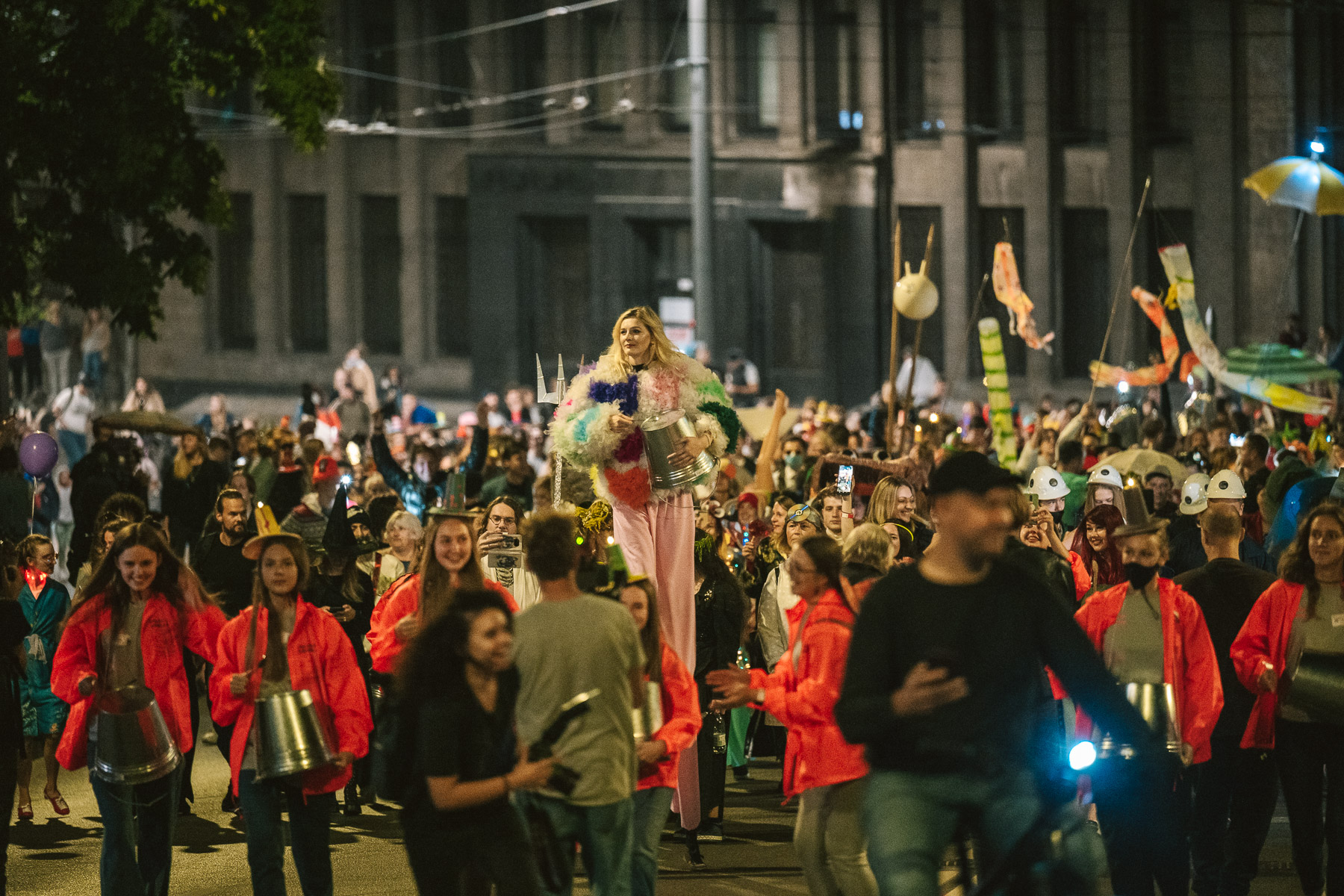
„Fluxus festivalis“
Rugsėjo 10 d. į Kauną sugrįžta „Kaunas 2022“ bendruomenių programos „Fluxus Labas!“ organizuojamas „Fluxus festivalis“ – tradicija tapęs miesto renginys, šiemet išaugsiantis į didžiausią festivalį savo gyvavimo istorijoje. Dalyvių laukia netikėti, originalūs ir su šypsena į gyvenimą žvelgiantys Lietuvos bei užsienio menininkų pasirodymai ir pagrindiniu festivalio akcentu tapęs spalvingas kopimas į Parodos kalną.
Kada: Fluxus kopimas – rugsėjo 10 d., 22 val.
Kur: Parodos kalnas
Daugiau informacijos galima rasti čia.
„Kaunas 2022“ litvakų kultūros forumas
Rugsėjo 29–30 d. „Kaunas 2022“ pakvies po visą pasaulį pasklidusius litvakus trumpam sugrįžti į protėvių žemę ir susitikti kauniečiams ir miesto svečiams skirtame Litvakų kultūros forume. Kelias dienas truksiančiame renginyje – turtinga kultūrinė programa ir garsių menininkų, mokslininkų bei kultūros pasaulio atstovų diskusijos, kuriose kviečiami dalyvauti visi, neabejingi miesto istorijai. Tarp pranešėjų: prof. Antony Polonsky, prof. Peter Salovey, prof. Tsvia Walden, menininkai Michael Shubitz ir Bruce Clarke bei kiti. Renginio globėja Ministrė Pirmininkė Ingrida Šimonytė. Garbės globėjas – prof. Liudas Mažylis.
Kada: rugsėjo 29–30 d.
Kur: VDU Didžioji salė, S. Daukanto g. 28
Visą programą galima rasti čia.
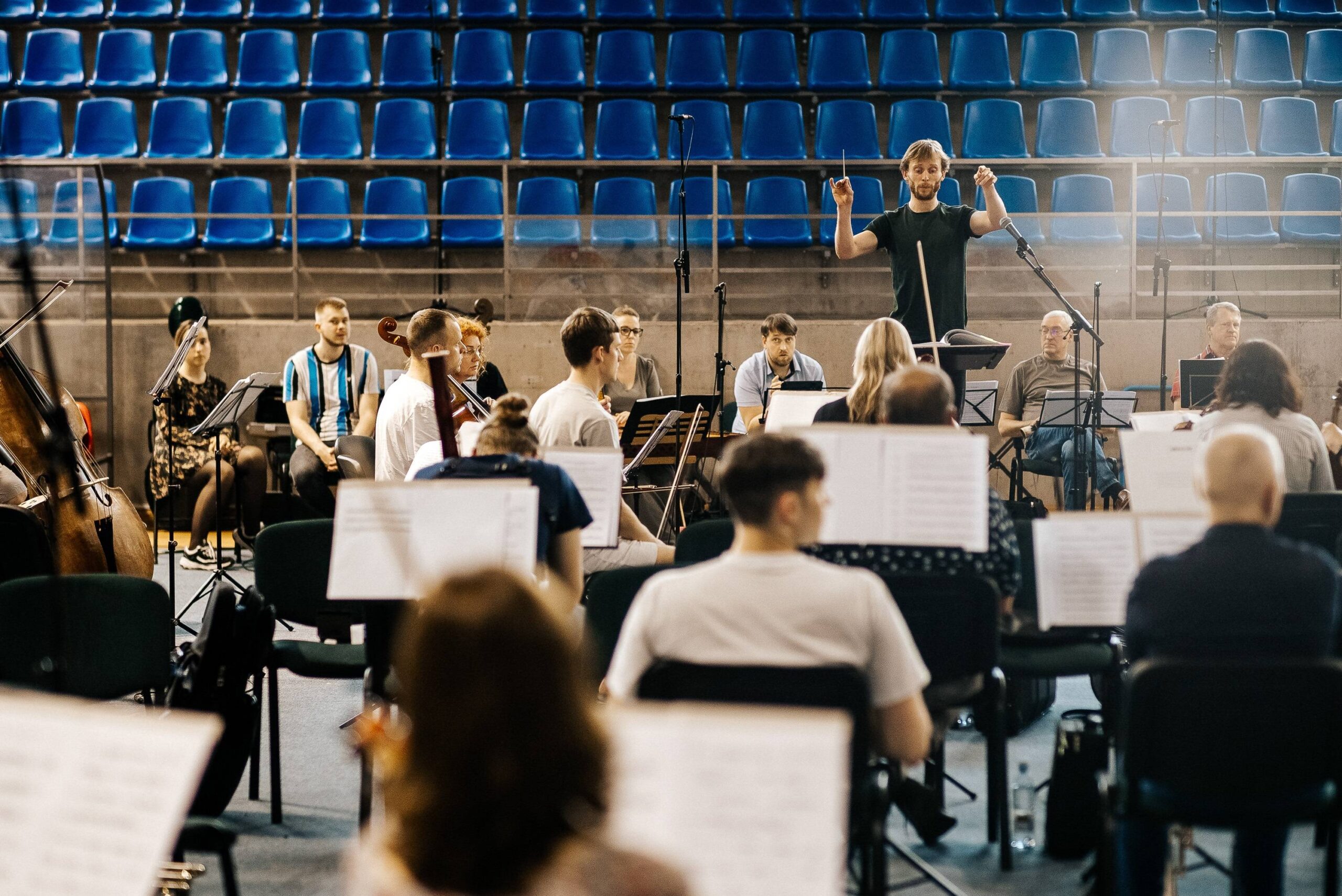
„Kauno kantata“
Tai nepaprasta, žiūrovus įtraukianti muzikinė patirtis, sukurta specialiai Kaunui ir jį mylintiems žmonėms. Kompozitorius Philipas Milleris ir vizualiųjų sprendimų menininkė Jenny Kagan kartu su Lietuvos muzikos atlikėjais kvies žiūrovus pasirinkti, ko klausytis ir ką girdėti. Kūrinį įkvėpė asmeniniai kauniečių liudijimai, prisiminimai ir turtingas bei daugialypis garsų pasaulis.
Kada: rugsėjo 30 d. – spalio 1 d., 19 val.
Kur: Kauno „Žalgirio“ arena
Įsigyti bilietus galima čia.
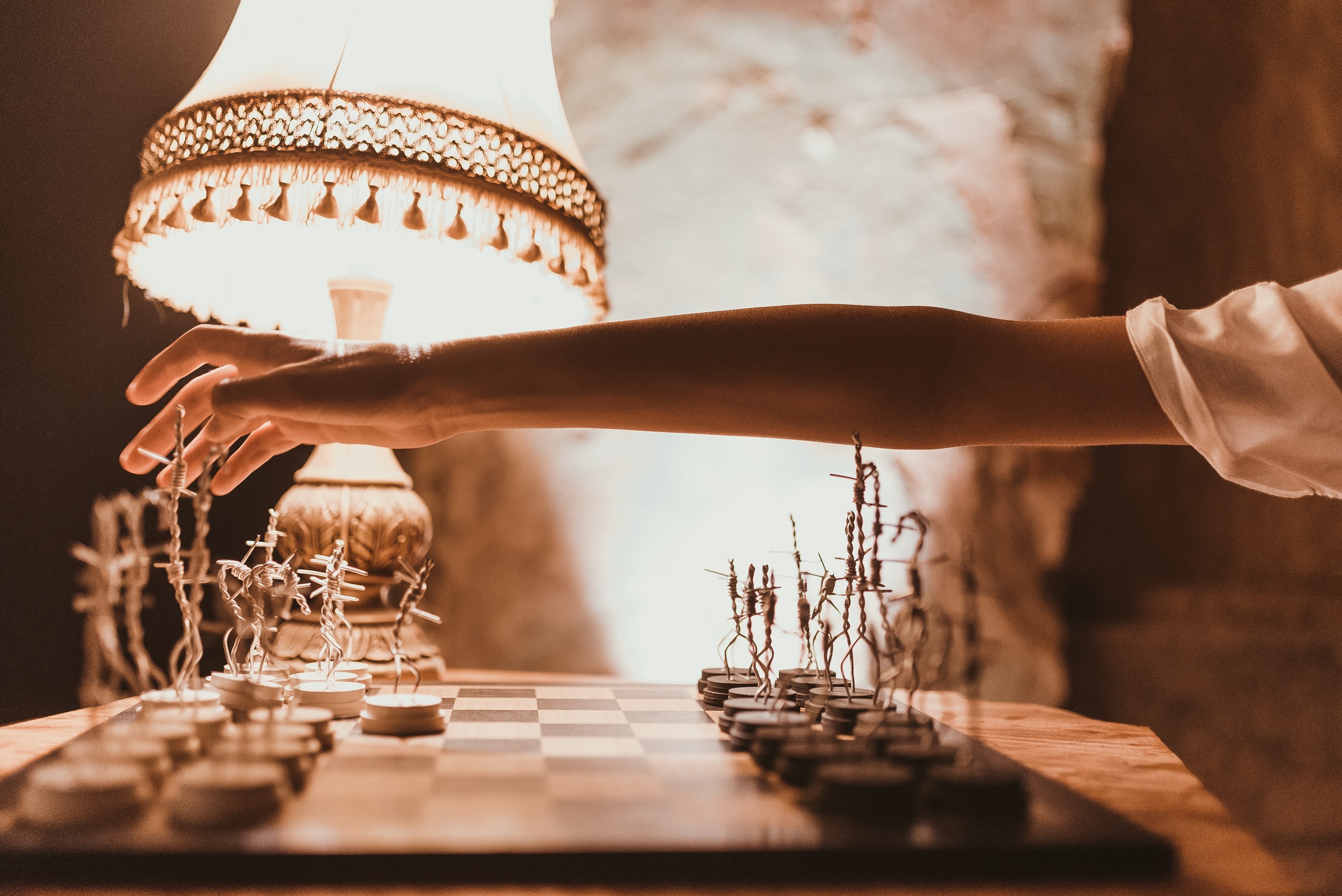
Interaktyvi paroda „Iš tamsos“
Menininkė Jenny Kagan, kauniečių Juozapo Kagano ir Margaritos Štromaitės dukra, užaugo Jungtinėje Karalystėje, apsupta istorijų apie prieškario ir karo metų Lietuvą. Parodoje „Iš tamsos“ ji atgaivina savo tėvų pasakojimus apie jų išgyvenimus Kaune Holokausto metais. Parodos aplinka – vaizdai, muzika, projekcijos ir kiti elementai – įtraukia žiūrovus į asmenišką ir kartu universalų pasakojimą.
Kada: iki spalio 30 d.
Kur: Gimnazijos g. 4
Įsigyti bilietus galima čia.
Konferencija „Modernizmas ateičiai. Interpretacijos“
Jau tradicine tapusi konferencija „Modernizmas ateičiai. Interpretacijos“ simboliškai uždarys penkerius metus augintą programą. Vaido Petrulio kuruojamame renginyje tikimasi diskusijų ir dialogo tarp įvairių sričių specialistų. Lietuvos ir užsienio pranešėjai dalysis gerosiomis praktikomis ir įžvalgomis apie modernizmą kaip inspiraciją kūrybiškumui, aptars meninius modernizmo architektūros komunikacijos atvejus ir tai, kuo jie svarbūs svarstant galimas paveldo ateities vizijas.
Kada: rugsėjo 21–22d.
Kur: „Žalgirio“ arenos amfiteatras ir kitos vietos
Visą programą galima rasti čia.
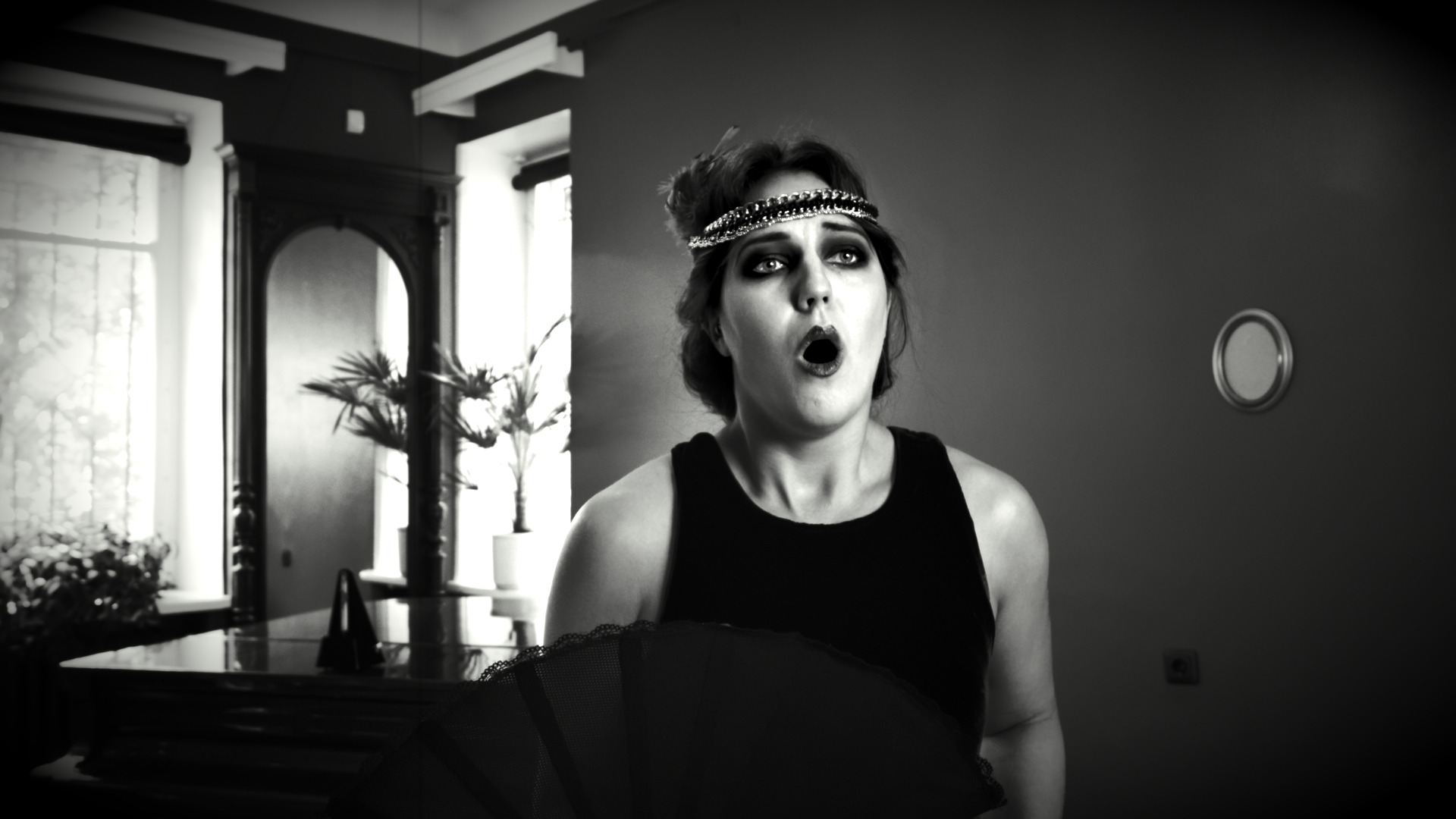
Filmo „Klostės“ premjera
„Klostės“ (angl. Folds) – tai 67 minučių trukmės juodai baltas nebylus filmas, kurį sukūrė Kauno gyventojai ir menininkė Aideen Barry. Filmas rugsėjo 22–24 d. bus pristatytas Kaune, duris po rekonstrukcijos atversiančioje „Romuvoje“. Juostą įkvėpė Kauno modernizmo architektūra ir joje slypinčios magiškos miesto istorijos. Tai – unikalus daugiau kaip 600 vietos gyventojų ir profesionalų apjungęs kūrybinis procesas, trukęs net dvejus metus.
Kada: rugsėjo 22–24 d.
Kur: Kino centras „Romuva“
Kultūriniai patyrimai Kauno rajone
Rugsėjį Kauno rajonas ir vėl taps traukos centru. Projektas „Šiuolaikinės seniūnijos“ kvies į Rokus, Lapes, Linksmakalnį ir Kačerginę, kur vyks bendruomenių kurti spalvingi festivaliai. Kultūriniai siurprizai laukia ir Zapyškyje. Buvusiame laive-žemkasėje „Nemuno7“ atidaroma ketvirtoji parodų ciklo „Takūs kūnai“ dalis „Agentai“, o OSTRALE bienalės rezidencijoje dalyvavę menininkai savo kūrybos rezultatus pristatys 3 jūriniuose konteineriuose ant Nemuno kranto.
Kada, kur: Rokai (09.03), Lapės (09.03), Linksmakalnis (09.10), Kačerginė (09.04), paroda „Agentai“ (iki 09.21), OSTRALE šiuolaikinio meno paroda (nuo 10.05)
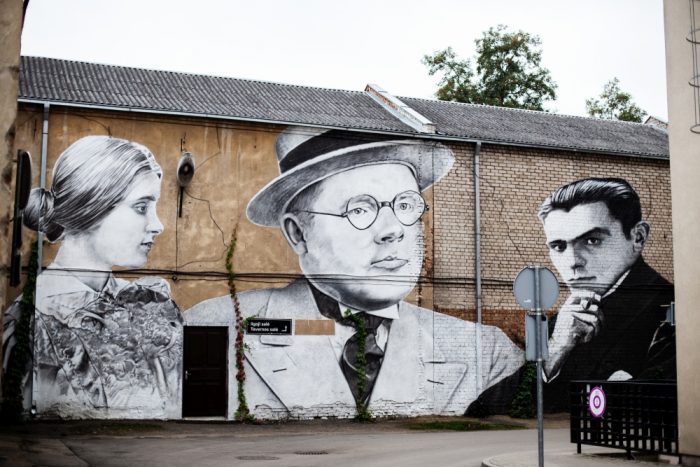
Landšafto dizaino festivalis „Magenta“
Kas pirmiau – gamta mieste ar miestas gamtoje? Apie tai susimąstyti jau rugsėjo 9–25 d. kvies landšafto dizaino festivalis „Magenta“. Kauno ir Kauno rajono gyventojų lauks beveik 20 naujų dizaino, taktinio urbanizmo ir landšafto objektų bei turininga festivalio programa.
Kada: rugsėjo 09–25 d.
Kur: Kaunas
Organizatorius: VšĮ „Šeimos laikas“
Daugiau informacijos galima rasti čia.
Kauno architektūros festivalis „Rytai-Rytai“
Į Kauno architektūros festivalio programą sugrįžta tarptautinis profesionalams ir plačiajam visuomenės ratui skirtas projektas „Rytai–Rytai“. Tai – ilgalaikio bendradarbiavimo rezultatas, kuris padėjo pamatus iki tol neegzistavusiems Lietuvos ir Japonijos architektūros mainams. Festivalio metu vyks forumas, parodos, profesionalų paskaitos, architektūros srities studentų darbų konkursas.
Kada: rugsėjo 22 – spalio 22 d.
Kur: Kauno centrinis paštas, „Žalgirio“ arenos amfiteatras
Daugiau informacijos: www.kafe.lt ir www.laskaunas.lt
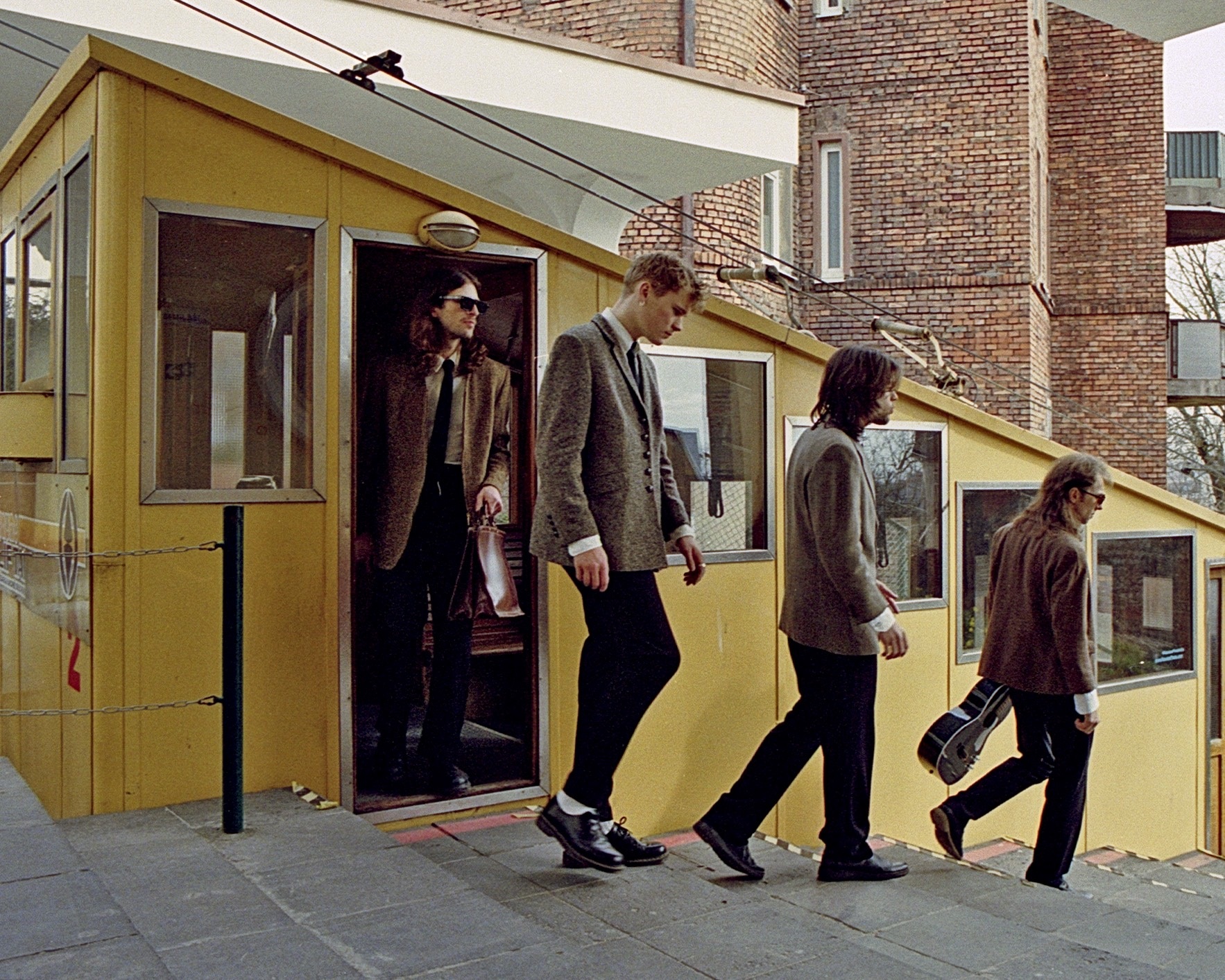
„Kaunas 2022 vasaros scena“
Rugsėjis – paskutinis Vasaros scenos mėnuo. Rotušės aikštėje jau pasirodė daugybė Lietuvos ir užsienio, muzikos ir teatro, netgi kompiuterinių žaidimų atstovų. Šį mėnesį scenoje pasirodys grupė Golden Parazyth, Gischt (AT), Rūta MUR, Tim Freitag (CH), ABUDU ir kiti.
Kada: iki rugsėjo 17 d.
Kur: Kauno rotušės aikštė
Daugiau informacijos apie nemokamus koncertus ir renginius galima rasti čia.
Roberto Wilsono spektaklis „Dorianas“
Spektaklis „Dorianas“ – istorinis įvykis Nacionalinio Kauno dramos teatro ir Kauno kultūros istorijoje. Vienas žymiausių šiuolaikinių teatro režisierių ir scenografų pasaulyje, menininkas Robertas Wilsonas, bendradarbiaudamas su „Dhouse“ (Diuseldorfas, DE), kauniečiams pasakos apie malonumų trokštantį princą, savęs nerandantį gyvenamajame laike.
Kada: spektaklio premjera – spalio 1, 2 ir 7 d.
Kur: Laisvės al. 71
Organizatoriai: Nacionalinis Kauno dramos teatras
Įsigyti bilietus galima čia.
Vasara baigiasi, bet kultūra tęsiasi
Rugsėjį tęsiasi ir gyventojų pamiltas projektas „Kultūra į kiemus“, šįkart aplankysiantis Aleksotą. Kultūros ir meno idėjų vaidmenį diskusijose apie Europos ateitį stiprins Europos kultūros parlamento sesija, paskutines dienas skaičiuos Yoko Ono instaliacija „Ex It“, o istorinę atmintį gaivins „Istorijų festivalis“. Visą „Kaunas 2022“ programą galima rasti www.kaunas2022.eu ar mobiliojoje programėlėje.
Vasara baigėsi tik kalendoriuje – „Kaunas 2022“ tęsia koncertų sezoną Rotušės aikštėje
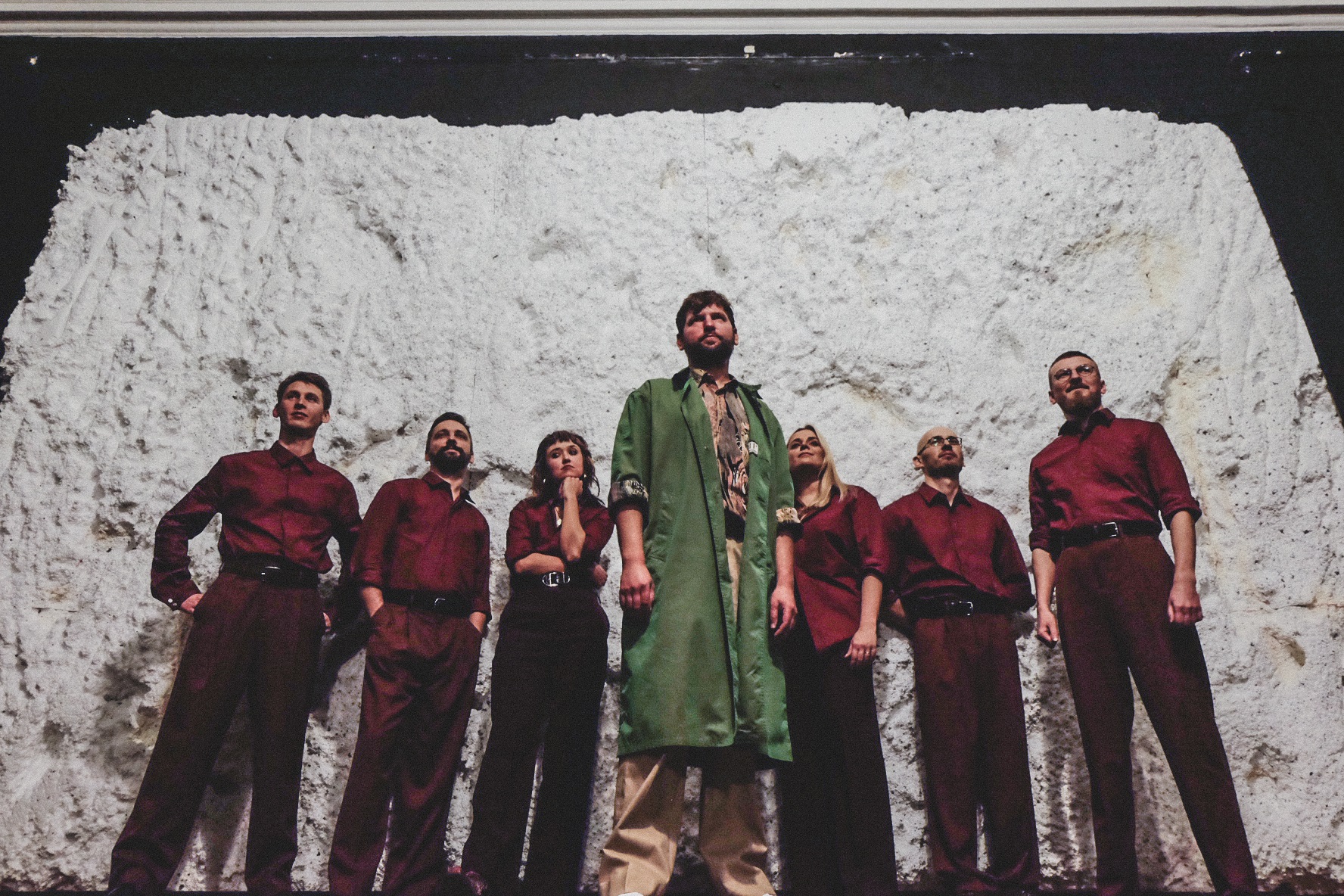
Šiuolaikinės sostinės ritmas Kaune nepasiduoda tradiciniams sezonų rėmams. Gegužę Rotušės aikštėje įsikūrusi „Kaunas 2022“ vasaros scena tęsia koncertų maratoną – rugsėjį čia suplanuoti dešimt skambių vakarų. Repertuare – Europos kultūros sostinės ambasadorių lietuvių bei svečių iš kitų šalių pasirodymai, „Istorijų festivalio“ koncertas ir specialūs renginiai mokslo metus pradedantiems jauniesiems kauniečiams.
Festivaliuose regėti laukiamiausieji
Po įsimenančių kelionių po festivalius į Rotušės aikštę Kaune šiemet dar suspės užsukti ne vienas alternatyviosios Lietuvos muzikos scenos šviesulys. Rugsėjo 2-ąją „namų aikštelę“ matuosis kauniečiai „Flash Voyage“. Liepą surengę įspūdingą pasirodymą šiuolaikinio miesto festivalyje „Audra“ psichodeliniai rokeriai scenoje žada pasekti ne vieną miškuose išgirstą, o gal prie ežero susapnuotą gitarinę pasaką.
Kito koncerto, kurio metu norėsis dainuoti kartu, ilgai laukti nereiks – rugsėjo 3-iąją į „Kaunas 2022“ vasaros sceną kops ir drauge šviesos ieškoti pakvies „Golden Parazyth“. Šio vakaro programoje – įsimintiniausi saulėlydžiai, gaiviausios medžių paunksnės, aromatingiausi augalai ir rečiausios gyvūnų šnektos.
Kelionės į Kauną laukia ir dar viena Europos kultūros sostinės ambasadorė, savo pasirodymų metu vaiskia rožine spalva nutapanti net pilkiausią dangų. Elektroninės muzikos kūrėja klaipėdietė Rūta MUR koncertą Rotušės aikštėje surengs rugsėjo 16-ąją. Tąvakar su ja scena dalinsis po GISCHT slapyvardžiu besislepianti Ursula Winterauer iš Vienos. Ši austrų atlikėja savo muzikoje tyrinėja ambient muzikos ir lėto techno pasienius.
Paskutinį „Kaunas 2022“ vasaros scenos akcentą rugsėjo 17-ąją sukurti patikėta kolektyvui „Abudu“, kurių vis dar naujausias albumas „Gaisras“ nenustoja rusenti gaivaus roko mėgėjų grotuvuose. Tarp lyrikos ir maišto – ne tik „Abudu“, bet ir kartu su jais koncertų erdvę uždarysiančių šveicarų „Tim Freitag“ moto. Ši grupė tikina, kad tikrai privers jus verkti. Klausimas tik vienas – iš džiaugsmo ar iš liūdesio?
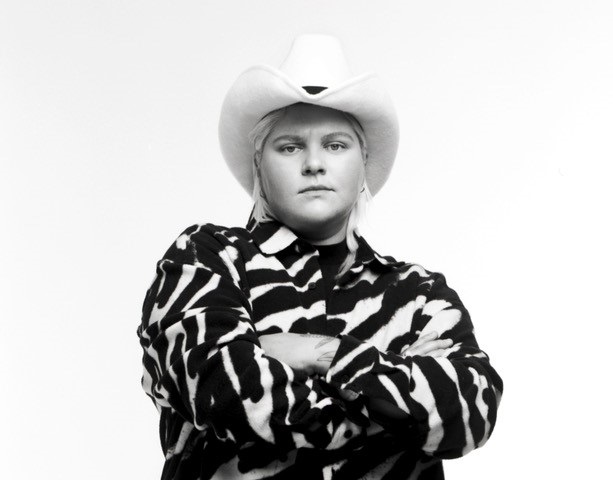
Net du orkestrai
Orkestrų koncertai jau tapo „Kaunas 2022“ vasaros scenos tradicija. Visgi paskutinio sezono mėnesio svečiai – ypatingi. Rugsėjo 4-ąją po pietų Kauno senamiestį užlies gaivūs styginių ir pučiamųjų garsai – scenoje pasirodys Lietuvos jungtinis klezmerių orkestras. Specialiai šiuo metu vykstančiam „Istorijų festivaliui“ susiburs „Rakija Klezmer Orkestar“ vyrukai, perkusininkas Arkadijus Gotesmanas ir smuikininkas Borisas Kirzneris. Orkestras kviečia sugrąžinti į šiuolaikinės muzikos pasaulį po antrojo pasaulinio karo beveik išnykusią klezmer, arba žydų liaudies muziką atliekančių muzikantų, tradiciją.
Dar vieni išskirtiniai „Kaunas 2022“ vasaros scenos svečiai rugsėjo 15-ąją atkeliaus iš Kauno miesto partnerio Lenkijoje. Torunės improvizatorių orkestras tikrai negalėjo pasirinkti geresnės vietos savo programai, dedikuotai poetui Adomui Mickevičiui, – juk būtent Rotušės aikštėje esančioje Jėzuitų gimnazijoje jis mokytojavo! Orkestro projekto „Vietos kraštovaizdis: baladės ir romansai. Torunė-Vilnius-Kaunas“ esmė ir yra priminti apie Mickevičiaus „Baladžių ir romansų“ universalumą bei prasmių galybę. Kaip tik šiemet šiam baladžių rinkiniui sukanka 200 metų, o 2022-ieji Lenkijoje paskelbti Romantizmo metais.
Literatūriniai žaidimai ir pasakos lagamine
„Gyvenimas telpa pasakoje, pasaka – lagamine, o krūva pasakiškų lagaminų – „Pasakų name“, – taip į ketvirtadienį, rugsėjo 1-ąją, Mokslo ir žinių dieną, suplanuotą renginį kviečia Vaikų literatūros muziejus. Įvairiausių lobių pilni lagaminai iš muziejaus K. Donelaičio gatvėje atkeliaus į Rotušės aikštę – čia nuo 15 val. darželinukai, moksleiviai ir jų šeimos galės pasinerti į pasakos veiksmą.
Rugsėjo 8-ąją vos porą šimtų metrų iki „Kaunas 2022“ vasaros scenos teks paėjėti čia pat, Rotušės aikštėje, veikiančio Maironio lietuvių literatūros muziejaus darbuotojams. Lauktuvių jie atsineš literatūrinių žaidimų. 15 val. įsisuks Literatūrinis laimės ratas, kuriame lauks klausimai apie lietuvių literatūrą, o juos atsakiusiųjų – prizai. Veiks ir šachmatų kampelis – žinoma, knygiškas.

Kostiumų dirbtuvės ir repeticija prieš „Fluxus festivalį“
Vienas laukiamiausių rudens pradžios renginių Kaune, kuomet sutemus Parodos kalnas bus uždarytas automobiliams ir atvertas margiausiai persirengėlių miniai, – „Fluxus festivalis“. Rugsėjo 10 d. šis renginys vyks jau penktąkart, tad pasirengti (ir apsirengti) jam privalo kiekvienas Fluxus dvasia gyvas kaunietis. Norintieji susikurti savo Fluxus alter ego Rotušės aikštėje laukiami rugsėjo 9-ąją nuo 18 valandos. „Reikiamų priemonių surasite dirbtuvėse, tačiau norinčius kviečiame atsinešti blizgučių, kaspinėlių, perukų, dėžių ir kitų spintose miegančių priemonių, galinčių virsti beprotiškiausiu kostiumu“, – ragina organizatoriai.
Rytojaus muzika Lietuvos širdyje
Tradiciškai sostinėje rugsėjį vykstantis talentų festivalis ir konferencija „What’s Next In Music?“ šiemet aplankys ir Kauną. Rugsėjo 10-ąją į Europos kultūros sostinės sceną lips šviesios ir intriguojančios rytojaus žvaigždės.
Programoje – Kaune gyvenanti prancūzaitė Clara Giambino, Vilniaus post-punk grupė „Local Blood“, iš Italijos atvykstantis albanų elektroninės muzikos duetas „Shkodra Elektronike“ ir kino srityje taip pat besisukantis, vienas žymiausių estų atlikėjų Andres Kõpper, prisistatysiantis NOËP vardu.
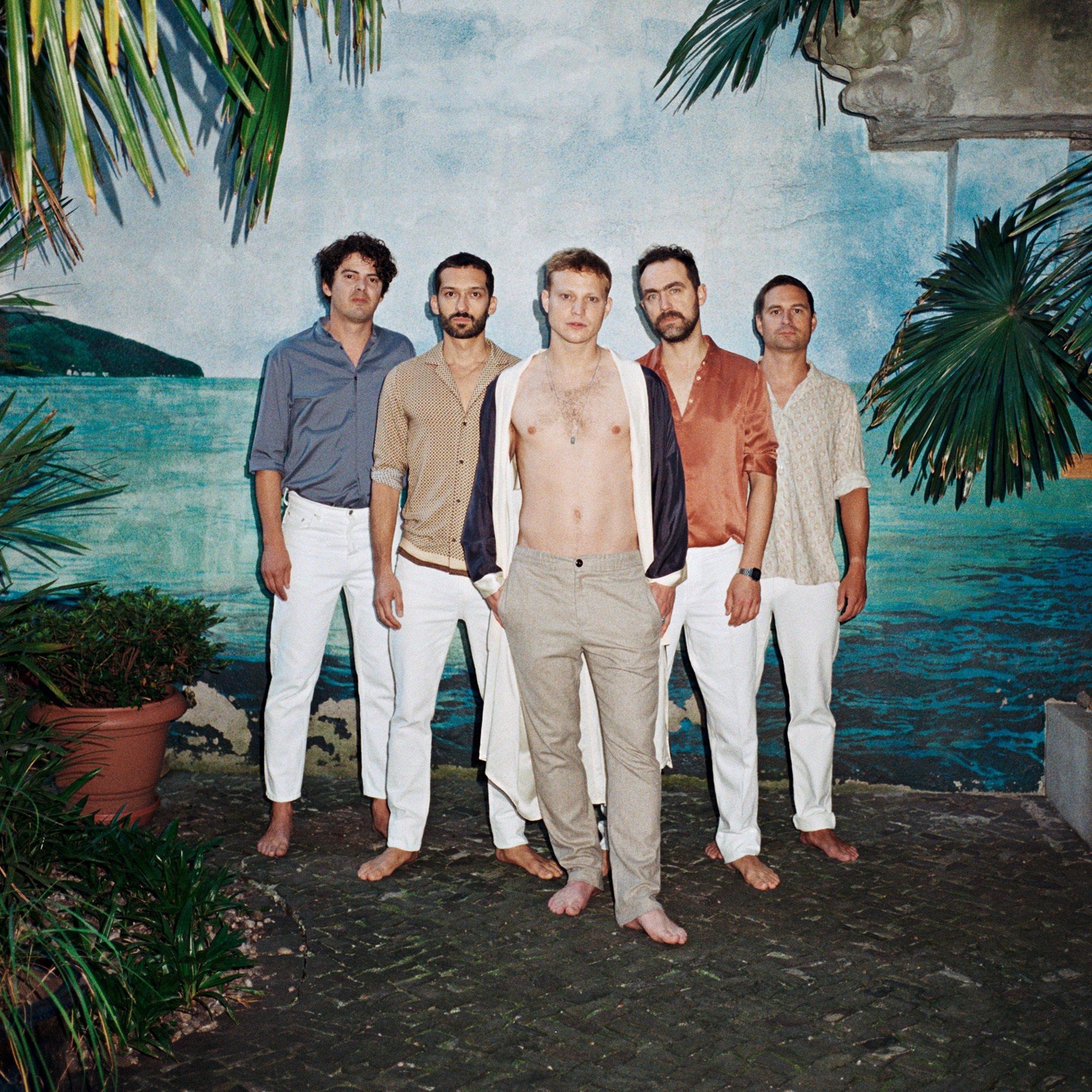
Europos kultūros sostinės programa Kaune ir Kauno rajone tęsiasi visus metus – 2022-aisiais suplanuoti šimtai tradicinių ir debiutuojančių renginių, tarp kurių parodos, festivaliai, spektakliai ir kitos veiklos, kuriamos vietos ir tarptautinių menininkų bei Kauno bendruomenių. Visą „Kaunas 2022“ programą rasite www.kaunas2022.eu ar mobiliojoje programėlėje.
Europinė Santara: Europos Kultūros parlamentas Kaune
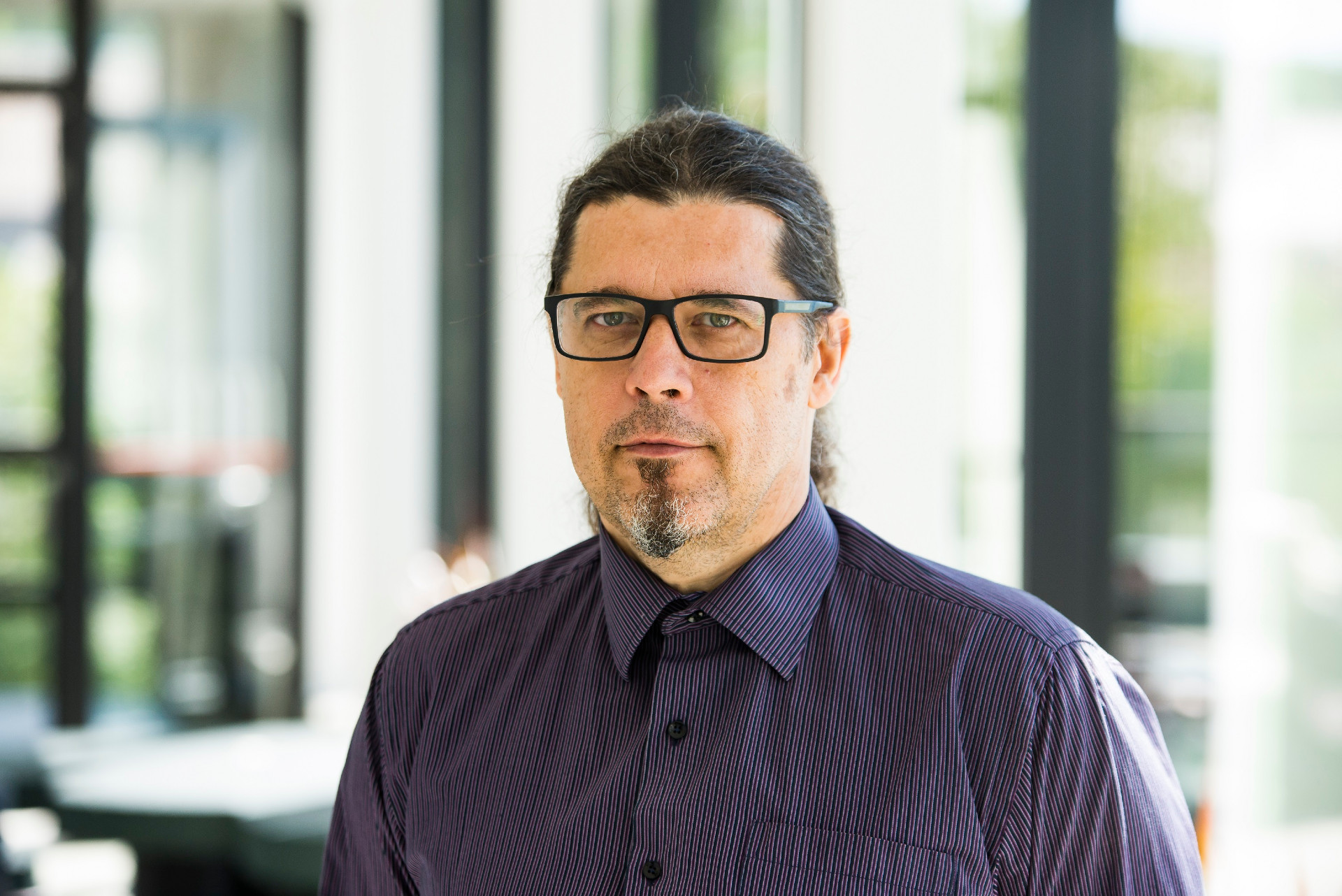
Rugsėjo 8–10 dienomis Kaune, Vytauto Didžiojo universiteto ir „Kaunas –Europos kultūros sostinė 2022“ patalpose ir renginiuose vyks Europos Kultūros parlamento sesija. Dažną suklaidins „parlamento“ pavadinimas: mes įpratę, kad parlamentuose dirba pagal partinius sąrašus išrinkti asmenys, kartais nelabai susigaudantys, ką ir kodėl čia jie veikia. Europos kultūros parlamentas (toliau EKP) yra nevyriausybinė organizacija, ir jos narių niekas nerinko, tik rekomendavo ir svarstė EKP komitetai. Panašiai yra priimami asmenys į įvairias draugijas: filosofų, sociologų, psichologų. Pagal savo tikslus ir veiklas EKP yra identiškas Santaros-Šviesos organizacijai pasaulio lietuvių tarpe: neformali, aprėpia daugelį šalių, joje veikia įvairūs su kultūros politika susiję asmenys. Svarbiausia, čia yra ne formalus atstovavimas, o gebėjimai, kultūrinis Europos pilietiškumas ir aktyvumas. EKP vadovaujasi nuostata: „mes visi esame lygūs europiečiai“ ir skatina europietišką tapatybės formavimą, europietišką kosmopolitizmą. Taigi, nė vienas EKP narys formaliai neatstovauja savo šalies, tačiau jei nori ir gali – neformaliai atstovauja. Manęs klausia: kokia nauda iš buvimo EKP nariu? Finansinės ar tiesioginės karjeros – jokios naudos: EKP neturi savo biudžeto, o suvažiavimai ar sesijos, kaip ir Santaros-Šviesos atveju, vyksta daugiausiai iš savo pačių narių lėšų: patys už visa susimoka ir lygiai taip pat, kaip ir Santaros-Šviesos suvažiavimai – EKP sesijos yra atviros studentams, žurnalistams, kitiems kultūros politika susidomėjusiems asmenims. Tačiau, kadangi sesijos vyksta įvairiose Europos (ne tik ES) šalyse, sveikinama, jei atsiranda rėmėjų, nes daugeliui dalyvių, kultūros veikėjams, kritikams ir filosofams būna per brangu dalyvauti ir iš dalies, pagal atskirą prašymą, gali būti padengtos kai kurios išlaidos.
Tačiau yra ir keli svarbūs skirtumai lyginant su Santara-Šviesa. Santara bando aprėpti visas aktualias temas: kultūros, švietimo, mokslo, politikos, o EKP – tik kultūros politikos, ir tuo labiau primena Europos kultūros politikų draugiją. Kitas skirtumas yra tarptautiškumas. EKP aprėpia apie 40 šalių aktyvistus ir yra atsigręžęs ne tik į ES, bet ir visą Europą, įskaitant Ukrainą, Sakartvelą, Baltarusiją, Serbiją, Bosniją ir Hercegoviną, Rusiją ... Vis dėlto ne tiek yra svarbi šalis, o parlamentaro laisvumas, individualizmas, gebėjimas dalyvauti tarptautinėse diskusijose, kultūros sferos supratimas, noras pačiam investuoti į tai savo laiką ir lėšas ir, svarbiausia, – bendros Europos idėjos supratimas.
EKP įkūrėjai: buvęs Suomijos užsienio reikalų ministras Pär Stenbäckas; buvęs Švedijos diplomatas, operos dainininkas, tarptautinių santykių profesorius Karl-Erik Norman; knygos „Europos istorija“ (išleista ir lietuvių kalba) autorius Frederique Delouche ir kiti. Parlamento senatoriai: Benjaminas Bradshaw – buvęs Britanijos kultūros ministras, Erna Hennicot-Schoepges, buvusi Luxemburgo kultūros ministrė, Memli Krasniqi – buvęs Kosovo kultūros ministras, Ivaylo Znepolski – buvęs Bulgarijos kultūros ministras ir kiti. Viso – apie 200 narių iš visos Europos: architektai, operos dainininkai, dailininkai, galerijų ir teatrų vadovai, filosofai, režisieriai, žurnalistai ... Tarp Anapilin iškeliavusių parlamentarų paminėtina žurnalistė Anna Politkovskaja, kurios žudikai Putino Rusijoje taip ir nerasti bei Leonidas Donskis, filosofas ir kultūros politikas.
EKP yra aštri diskusijų vieta, kur kartais būna ištisi mitingai. Juose buvo labai plačiai ir aštriai diskutuojama Graikijos ekonominė krizė ir šios šalies bandymas pasitraukti iš ES, ką tai reiškia Europai, kurios demokratija gimė Atėnuose? Atitinkamai buvo svarstomas Brexitas (Didžiosios Britanijos pasitraukimas iš ES), buvo reaguojama į Serbijos ir Kosovo besitęsiantį konfliktą, Rusijos karą prieš Sakartvelą, Krymo okupacija, šį kartą bus kalbama ir apie Rusijos agresiją prieš Ukrainą. Viena iš pastovių EKP temų yra Europos kultūros sostinių veikla, sėkmės ir sunkumai ar net skandalai: dėl netolerancijos seksualinėms mažumoms, dėl korupcijos, dėl tarptautiškumo stokos ar vietos valdžios aparato dominavimo. EKP stengiasi organizuoti savo veiklas Europos kultūros sostinėse, esamose ar buvusiose. Šį kartą aktyviai bendradarbiaujama su „Kaunas – Europos kultūros sostinė 2022“, kaip vienu iš sėkmingų, gal net pavyzdinių projektų. Kita tema yra kultūros politika ir diplomatija. EKP idėjiškai ir funkcionaliai yra susijęs su Berlyno Kultūros diplomatijos institutu, kuris ne kartą yra rėmęs organizaciją. Kultūros diplomatija ne tik aprėpia kultūros ministerijų veiklą, kurią EKP dažnai svarsto, bet taip pat analizuoja ir nacionalinių tarptautinių tinklų veiklą: Britų tarybos, Goethes instituto, Lenkijos instituto ir t. t., o taip pat nagrinėja tarptautinių meno festivalių gaires ir iššūkius, – kas iš esmės sutampa su kultūros diplomatijos veikla. Todėl EKP mato misiją remti ir tyrinėti kultūros diplomatiją Europoje ir už jos ribų. Kadangi su Britanijos sandrauga bei su kultūros diplomatija yra susijusios daugelis Afrikos ir Lotynų Amerikos šalių, organizuojamos atskiros tarpkontinentinės kultūros politikos sesijos, atsižvelgiant į lyginamąsias civilizacines studijas.
EKP veiklos rezultatai yra arba tradiciški tarptautinėms profesinėms draugijoms: kultūros politikai susitinka, bendrauja, plėtoja neformalius politinius santykius, rengia bendrus projektus, tyrimus, parodas, festivalius, leidžia knygas, tačiau taip pat daro sesijų pareiškimus ir rezoliucijas. Kiekvienos metinės EKP sesijos pabaigoje siūloma paskelbti EKP vardu rezoliuciją kultūros politikos srityje, kuri vėliau yra pateikiama ar tai atskirų šalių vyriausybėms ar Europos Tarybai (nepainioti su ES Taryba). Tačiau, EKP įtaka Europos kultūros politikai yra veikiau ne administracinė, o integrali: priklausomai nuo įsitraukimo į Europos kultūrines veiklas per Europos kultūros sostinių, festivalių , teatrų ir galerijų tinklų bendrą veiklą.
Vytauto Didžiojo universitetas, prof. dr. Gintautas Mažeikis
Registracijos anketą rasite ČIA
Prie Ukrainos reiverių talkos jungiasi ir kauniečiai
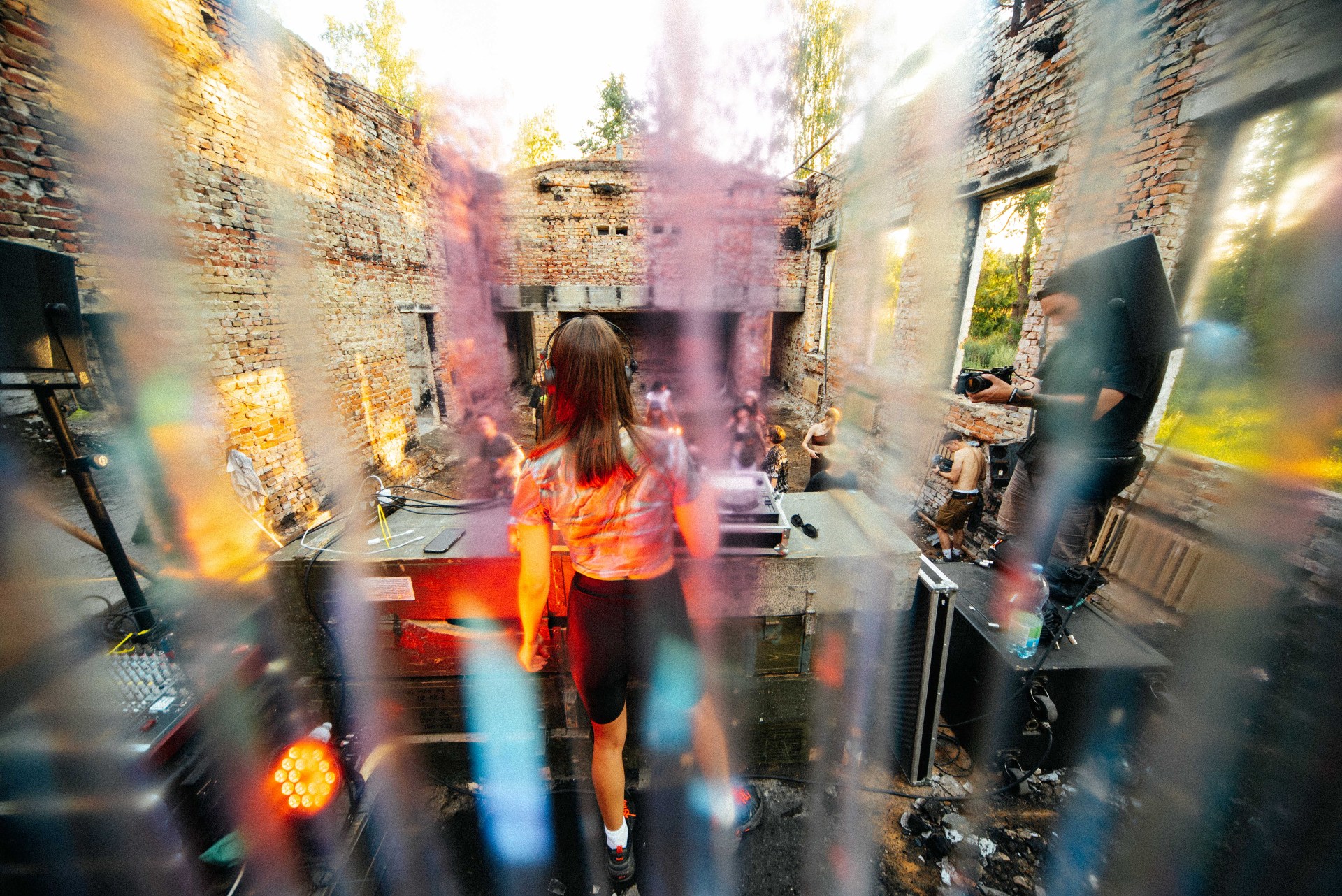
Šią vasarą internete vienas po kito ėmė plisti vaizdo įrašai, kuriuose didžėjus groja ne šokėjams, o karo nusiaubtuose pastatuose besitvarkantiems jaunuoliams. Tai vaizdai iš „Repair.together“ iniciatyvos vykdomų tvarkymosi darbų Ukrainos Černihivo regione. Šios iniciatyvos sujungtų naktinės kultūros entuziastų grupė jau sutvarkė per 80 pastatų Jahidnės, Lukašivkos ir Ivanivkos miesteliuose, o drauge su rėmėjais visiškai atstatė 13 namų, į kuriuos sugrįžo gyventi ukrainiečių šeimos. Prie savo naujausios tvarkymosi akcijos „Repair.together“ šį kartą nusprendė pakviesti prisidėti ir naktinio klubo Kaune „Lizdas“ lankytojus.
Šį kartą „Repair.together“ organizuoja dar didesnį reiva–talką, kurios metu tvarkys įspūdinguosius, tačiau visiškai sugriautus Ivanivkos kultūros namus. Dar prieš keletą mėnesių šie kultūros namai Ivanivkos miestelyje suburdavo artimiausių penkių gyvenviečių žmones, nuolat organizuodavo koncertus bei mokymus. Po karinės Rusijos agresijos iš šio pastato teliko fasadas griuvėsiai.
Tvarkymosi metu, ukrainiečiai planuoja surinkti ne tik 300 savanorių gyvai vietoje, tačiau ir pradėti rinkti lėšas iš bendraminčių savo tolimesniems darbams. Jų vizijoje – dar vienų kultūros namų bei net 5 privačių namų atstatymas Černihivo regione.
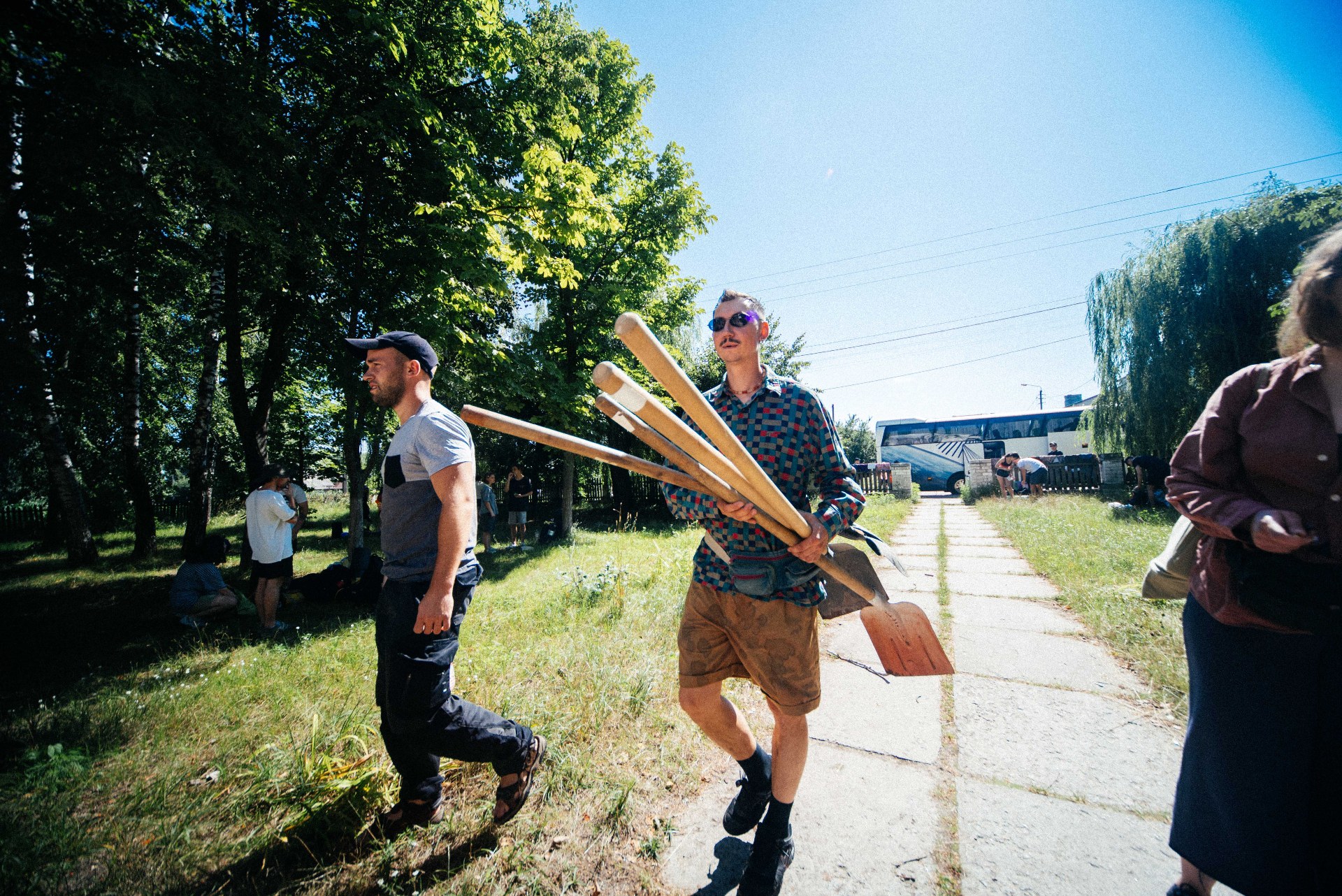
Šiai misijai padėti įgyvendinti ir buvo pakviesti Kauno bei Berlyno naktinės kultūros atstovai. Šie miestai susijungs į bendrą teletiltą su talka Ivanivkoje, transliuos vieni kitiems didžėjų pasirodymus, rinks lėšas ir savanorius.
Per tris miestus nusidriekiantis labdaringas lėšų rinkimo vakarėlis Kaune gyvai įvyks „Ąžuolyno“ parke, kur kiekvienas atėjęs galės ne tik pasimėgauti šokių muzika, bet ir patogiai paaukoti tiesiogiai „Repair.together“ iniciatyvai. Dalį renginio bus šokama ne tik pagal tiesioginę transliaciją iš darbų akcijos vietos – Ivanivkos, bet ir gyvai grojantį DJ pasirodymą.
Dieninis labdaringas vakarėlis įvyks jau rugsėjo 3 dieną, 14-22 valandą, o patekimas į jį – nemokamas ir neribotas. Tačiau iš kiekvieno atėjusio pasimėgauti muzika, bus tikimasi pagal išgales prisidėti prie tvarkymo darbų ir paaukoti pinigų.
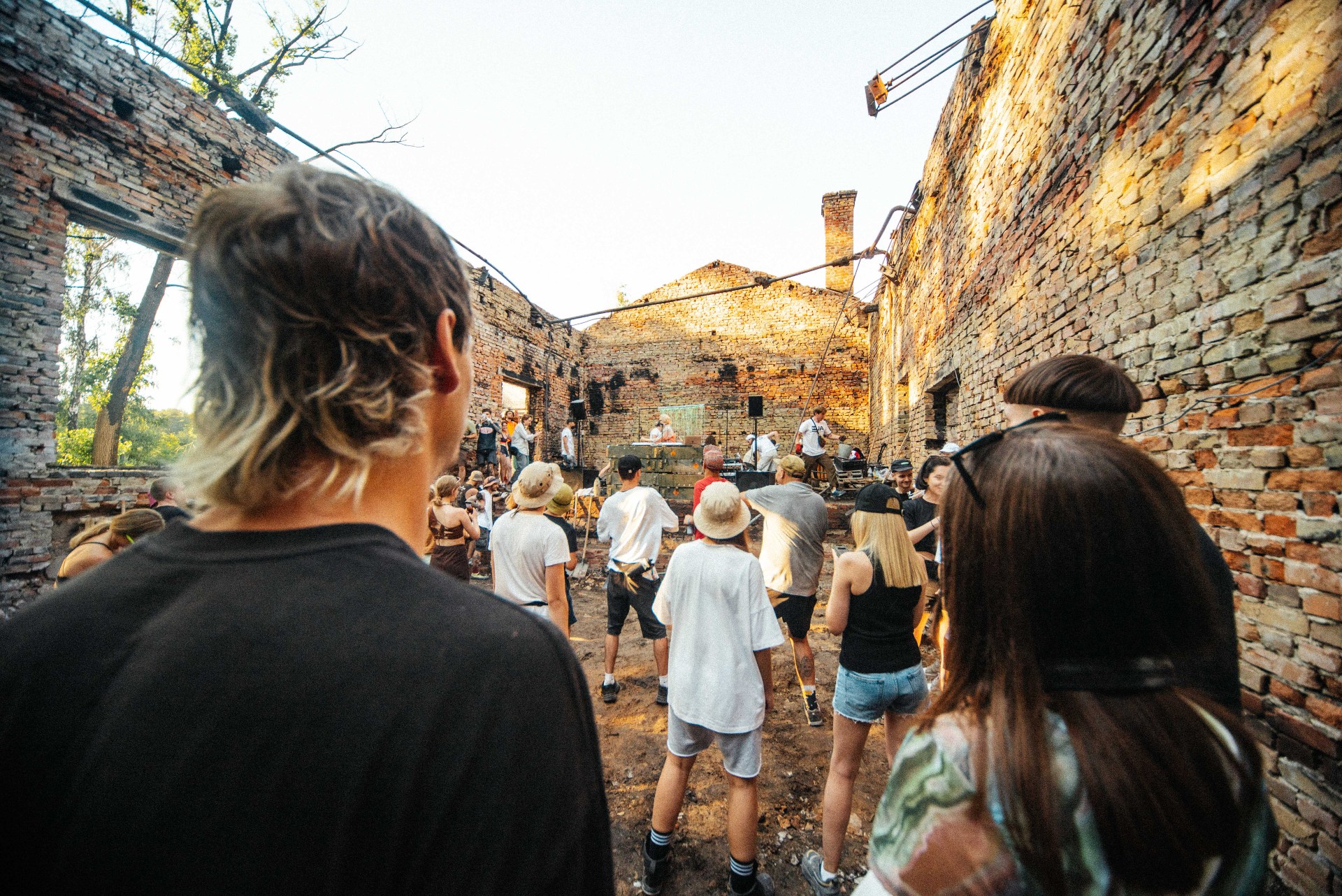
Kaune – išskirtiniai dizaino renginiai: nuo parodų iki pasaulinės reikšmės susitikimų
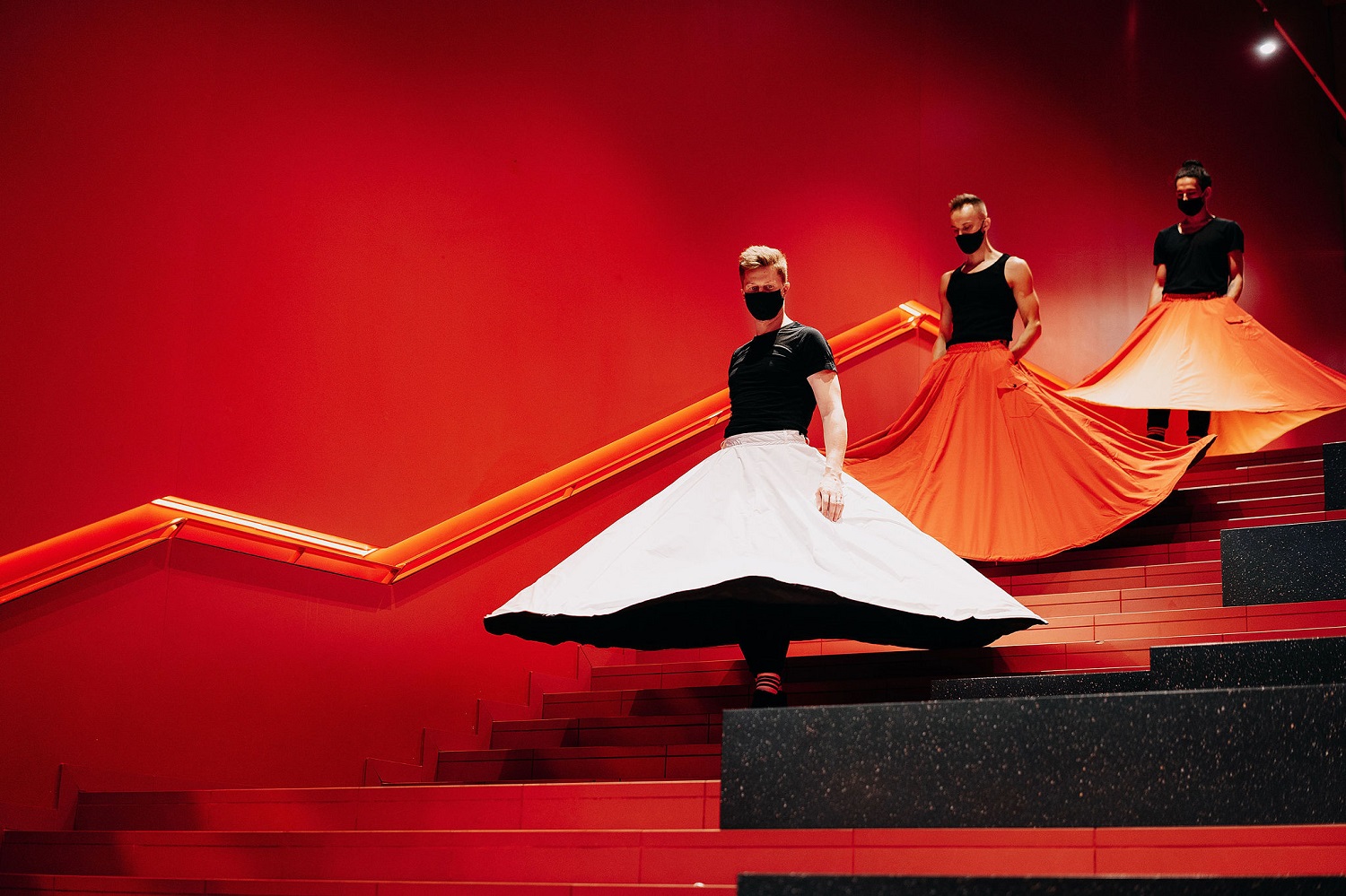
Kaunas šiais metais gali pasigirti ne tik Europos kultūros sostinės titulu, bet ir tuo, kad pamažu tampa tikru dizaino traukos centru. Nuo parodų, festivalių iki pirmą kartą į miestą atvykstančių pasaulinės svarbos tarptautinių organizacijų – artėjančiam rudeniui „Kaunas 2022“ programa „Dizainas laimei“ paruošė ne vieną siurprizą.
Kaunas yra pirmasis miestas regione, kuriam buvo suteiktas UNESCO Dizaino miesto statusas. Tai – ir svarbus įvertinimas, ir rimtas įsipareigojimas, kurį miestas vykdo itin atsakingai. „Siekiame, kad Kaunas šiais metais dizaino pasaulyje taptų miestu–atradimu,“ – pasakoja „Kaunas 2022“ programos „Dizainas laimei“ kuratorė Donata Jutkienė. „Kartu su partneriais rudenį pasitinkame ruošdami išties turiningą ir išaugusią programą, kurioje – ne tik Lietuvos gyventojams, bet ir tarptautinei auditorijai aktualūs renginiai, susitikimai ir parodos. Tikimės, kad jie prisidės prie dizaino kultūros populiarinimo tiek mūsų šalyje, tiek ir už jos ribų.“
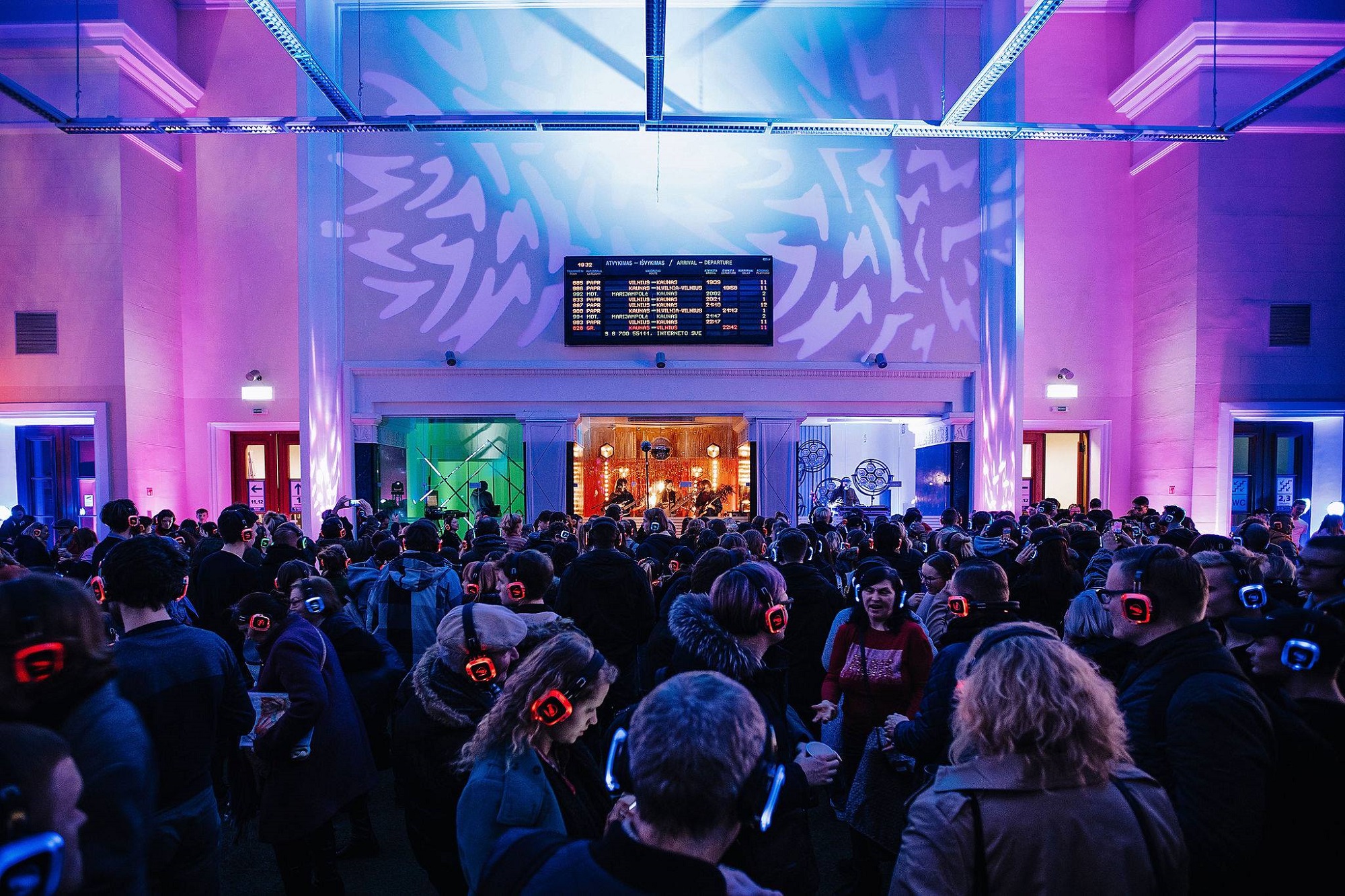
Kaune ir Kauno rajone – nauji objektai bei instaliacijos
Kas pirmiau – gamta mieste ar miestas gamtoje? Apie tai susimąstyti jau rugsėjo 9-25 d. kvies landšafto dizaino festivalis „Magenta“. Kauno ir Kauno rajono gyventojų lauks beveik 20 naujų dizaino, taktinio urbanizmo ir landšafto objektų, kurtų Lietuvos ir užsienio menininkų, architektų ir fotografų. Festivalio programoje – net tik naujų objektų ir meno kūrinių pristatymas, bet technologinio meno instaliacijų paroda bei tarptautinė landšafto dizaino konferencija „Nature. Human. City“.
Svarbi programos dalis skirta ir jaunajai kartai. 8-12 m. vaikų lauks kūrybiškumo dirbtuvės „Laimingas miestas“, kurias ves dizaineriai Neringa ir Denis Orlenok, o studentai galės sudalyvauti beveik savaitės trukmės užsiėmimuose „Atominė bazė“.
Atidžiai dairytis verta ir miesto centre - Steigiamojo Seimo aikštėje įsikūrusi net 15-os įmonių, dizaino agentūrų ir mokslo institucijų kurta „K Totem“ skulptūra nuolat atsinaujina. Vizualinį erdvinės skulptūros apipavidalinimą kuria vietos ir užsienio menininkai, taip kūrėjams suteikiant galimybę visuomenei pristatyti savo darbus, o praeiviams – jais pasigrožėti.
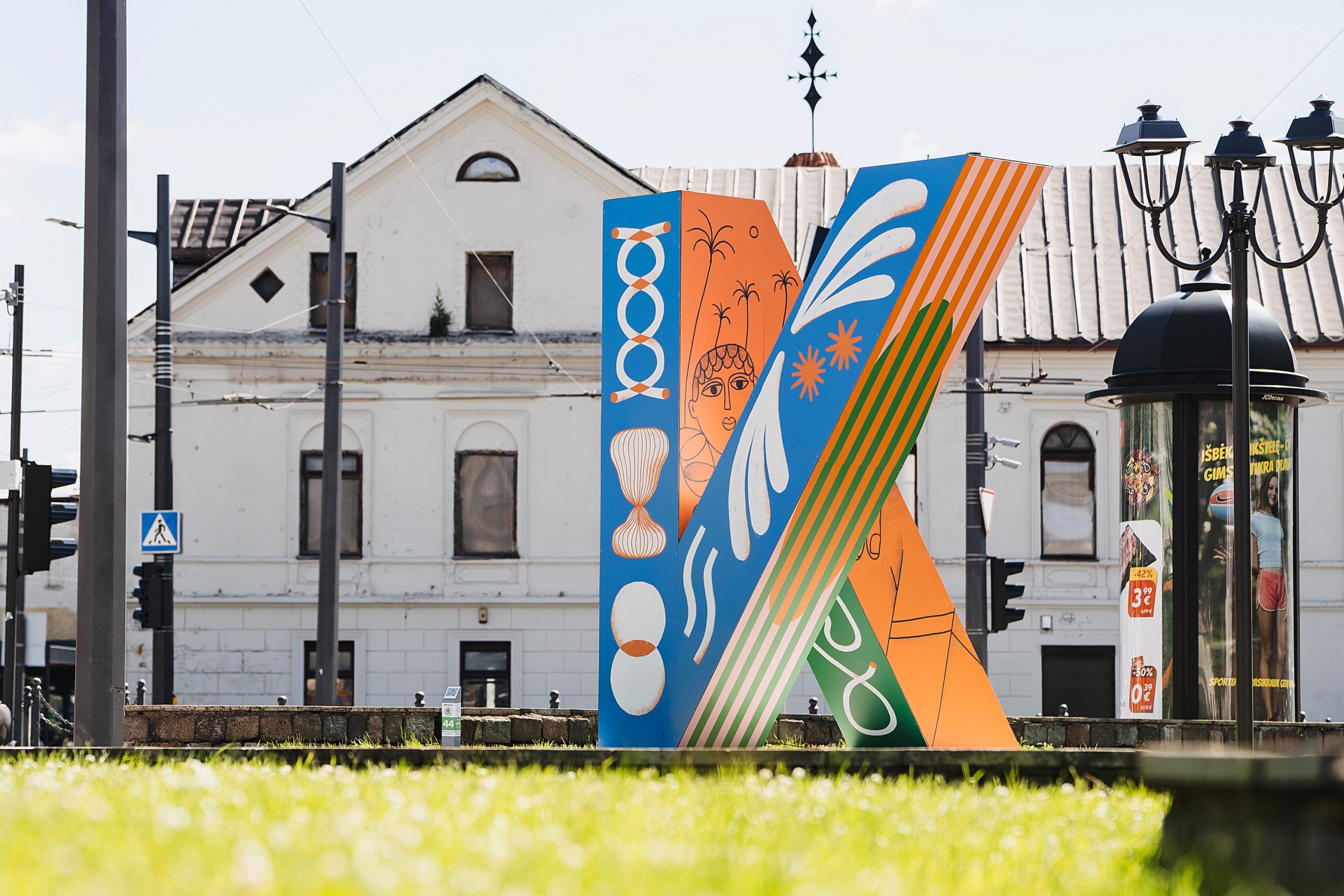
Išskirtinės dizaino parodos – kiekvieno skoniui
Rugsėjo 29 – spalio 22 d. apsilankę Kauno centriniame pašte galės susipažinti su 7-9 deš. Lietuvos grafinio dizaino istorijomis. „Kauno ASORTI: 1964–1984 m. grafinio dizaino istorijos“ ekspozicijoje – lietuvių autorių sukurti plakatai, saldainių ir suvenyrų pakuotės, prekių ženklai, dizainerių vardiniai vokai ir artefaktai. Visi jie ne tik papasakos apie dizaino istorijos procesus, pačius kūrėjus ir jų darbus, bet ir savaip kalbės apie laiką, tapatumą ir tvarumą.
Tomis pačiomis dienomis Kauno centriniame pašte malonus siurprizas lauks ir porceliano meno mėgėjų. XXI tarptautinė kaulinio porceliano simpoziumo paroda „Porceliano miestas“ dedikuota Kauno miesto porceliano istorijai, post-industrinio keramikos meno tendencijoms. Tarptautinė menininkų komanda pristatys meno kūrinius iš kaulinio porceliano, sukurtus simpoziumo metu naujose VDA Kauno fakulteto keramikos dirbtuvėse. Parodą papildys teminė ekspozicija, apžvelgianti Kauno porceliano istoriją, „Jiesioje“ kurtus porceliano indus ir mažo tiražo dizaino pavyzdžius, Kauno dailės instituto keramikos ir porceliano katedros sukurtus indų, servizų projektus.
Spalio 1-14 d. bus galima aplankyti unikalią parodą „Austinis menas“ – Kauno menininkų namuose duris atvers kilimų ekspozicija, kurią pristatys menininkai iš Prancūzijos, Austrijos, JAV, Suomijos, Alžyro ir kitų šalių. Lankytojai galės išvysti Vienos secesijai, pirmiesiems art deco laikotarpio metams, modernistiniam laikotarpiui būdingus raštus ir puošybą.
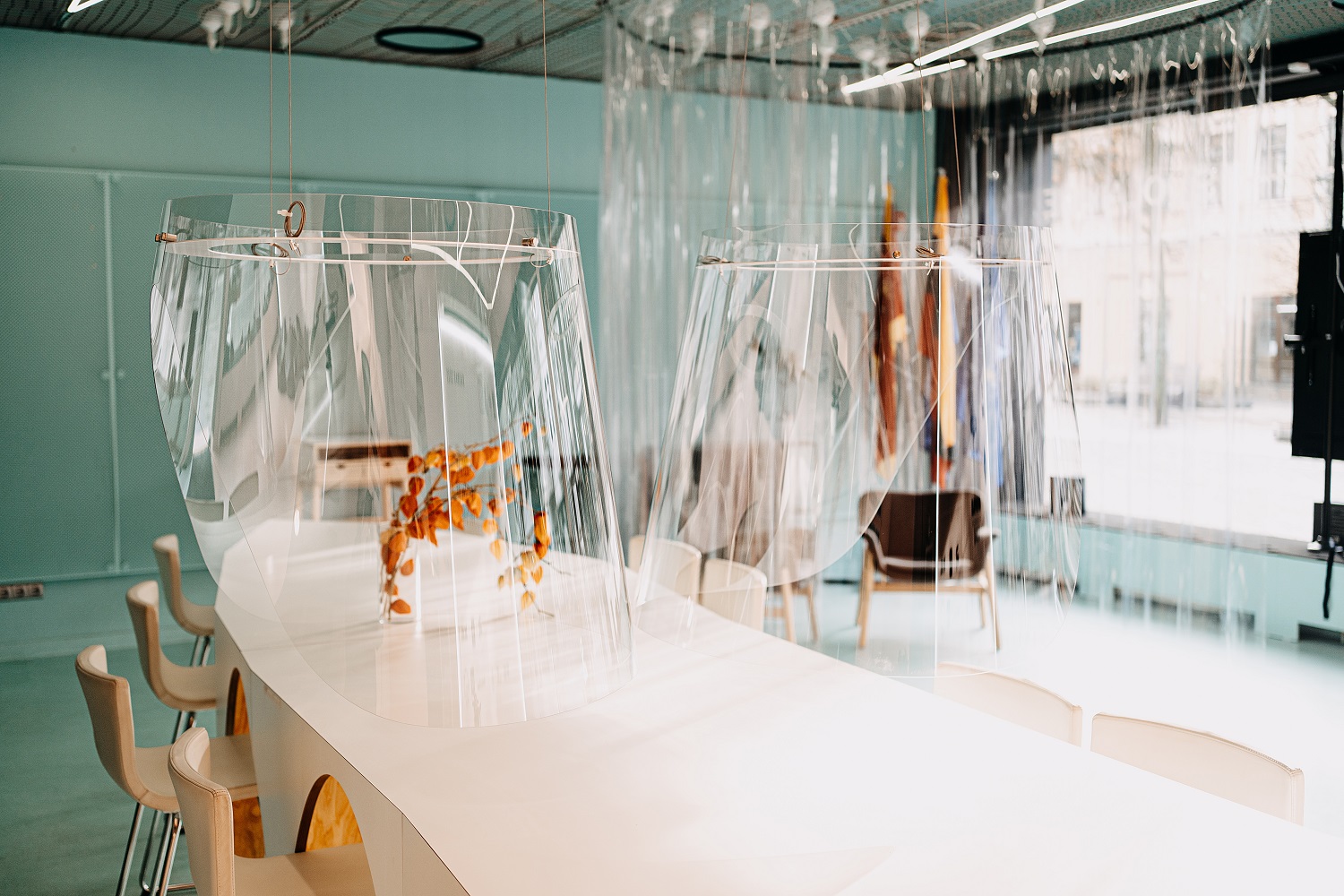
Kaune susitiks svarbiausios pasaulio dizaino organizacijos
Augantys tarptautiniai ryšiai ir Europos kultūros sostinės titulas į miestą pritrauks ne tik parodas ar festivalius – Kaune pirmą kartą susitiks ir svarbiausios pasaulio dizaino organizacijos: UNESCO Dizaino miestų tinklas, ICoD, BEDA ir EIDD. Spalio 14 d. Kaune vyksiantis Tarptautinių dizaino tinklų forumas koncentruosis į laimingo miesto sąvoką ir kūrimą bei ieškos atsakymo į klausimą, ką galime padaryti, kad žmogus savo aplinkoje jaustųsi pilnavertiškai. Forumo metu vyksiančiose kūrybinėse dirbtuvėse dalyvaus ir Lietuvos savivaldybių atstovai – kartu su kitais dalyviais jie ieškos originalių būdų spręsti miesto problemas pasitelkiant dizaino siūlomas galimybes.
„Renginys dėl čia dalyvaujančių organizacijų svarbus ne tik ilgalaikei tinklaveikai – lietuvių dizainerių, urbanistikos, architektūros ir kitų sričių specialistų įsitraukimui, bet ir yra aktualus savo tematika. Manau, kad svarbu ir būtina kalbėti apie miestą ir žmogų, jų tarpusavio sąveiką,“ – pasakoja „Kaunas 2022“ programos „Dizainas laimei“ kuratorė Donata Jutkienė.
Visi šie renginiai – dar ne pabaiga. „Dizainas Laimei“ organizatoriai ateityje pažada ne vieną malonų netikėtumą. Sekti renginių programą galima čia.
Europos kultūros sostinės programa Kaune ir Kauno rajone tęsiasi visus metus – 2022-aisiais suplanuoti šimtai tradicinių ir debiutuojančių renginių, tarp kurių parodos, festivaliai, spektakliai ir kitos veiklos, kuriamos vietos ir tarptautinių menininkų bei Kauno bendruomenių. Visą „Kaunas 2022“ programą rasite www.kaunas2022.eu ar mobiliojoje programėlėje.
Karl-Erik Norrman: šiemet labai svarbu ginti Europos vertybes
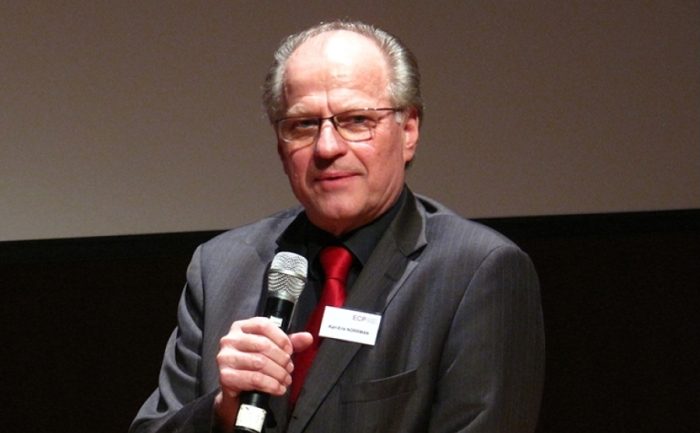
„Šiemet labai svarbu ginti Europos vertybes – laiku, kai vyksta karas ir priešinamasi demokratijai, žmogaus teisėms, laisvam judėjimui ir taip toliau. Tai bus viena svarbiausių priežasčių, kodėl surengsime šį susitikimą Kaune. Be to, manome, kad reikšminga, jog susitinkame būtent universitete – čia aptarsime, kaip skatinti universitetų vaidmenį Europos kultūriniame bendradarbiavime“, – teigia Europos kultūros parlamento (EKP) įkūrėjas ir generalinis sekretorius, ambasadorius Karl-Erik Norrman. Rugsėjo 8–11 dienomis jis dalyvaus EKP sesijoje Lietuvoje – Vytauto Didžiojo universitete (VDU) ir „Kaunas Europos kultūros sostinė 2022“ patalpose.
Europos kultūros parlamento sesijos metu Kaune apsilankys EKP nariai, nepriklausomi menininkai, rašytojai, muzikantai, istorikai, filosofai, dizaineriai ir kitų kultūros sričių atstovai iš D. Britanijos, Švedijos, Graikijos, Airijos, Nyderlandų ir kitų Europos šalių. Sesijos metu vyks diskusijos, kūrybinės dirbtuvės, parodų pristatymai. Visuomenei atviruose renginiuose bus aptariamos temos, susijusios su Europa ir jos kultūra – universitetų vaidmuo Europos kultūros sostinėse, kultūros diplomatija, kultūros vaidmuo karo kontekste ir kiti klausimai. Savaime suprantama, bus prisiminta ir Ukraina – ne tik diskusijose, bet ir parodose. VDU Didžiojoje salėje bus eksponuojama ukrainiečių fotografo Oleksandro Zakleckio paroda.
„Galima sakyti, kad Ukraina šiemet tapo kultūros diplomatijos simboliu. Šiuo sunkiu metu jie atlieka puikų darbą: girdime ir matome, kaip ukrainiečių menininkai pasakoja apie save kaip apie europiečius, demokratus ir t. t. Pats prezidentas V. Zelenskis yra puikus kultūros diplomatas, jis visam pasauliui kalba apie europietiškas vertybes“, – paaiškina vienas iš EKP įkūrėjų K. E. Norrman, taip pat dirbantis dėstytoju Kultūros diplomatijos institute Berlyne. Anot jo, kultūros diplomatija kasmet darosi vis svarbesnė.
EKP generalinis sekretorius negaili gražių žodžių Lietuvai ir Kaunui, kuris šiemet yra Europos kultūros sostinė ir visus metus kviečia į įvairius kultūrai skirtus renginius. „Tai labai gera programa, kurią jūs vykdote labai sunkiu metu, esant daugybei grėsmių ir spaudimui iš jūsų didžiojo kaimyno. Manau, kad lietuvių pasirinkti metodai verti pagyrų. Mūsų šūkis – „Kultūra pirmoje vietoje“, tad tikimės, kad Lietuva ir toliau skirs kultūrai pirmenybę“, – „Kauno Europos kultūros sostinės“ programai komplimentus žeria K. E. Norrman.
Pašnekovas taip pat džiaugiasi, kad Lietuvoje, VDU Žemės ūkio akademijoje spalį vyks tarptautinė konferencija, kurią suorganizuos Europos kultūros sostinių universitetų tinklas. Šis tinklas siekia stiprinti universitetų vaidmenį Europos kultūros sostinių renginiuose.
„Toks bendradarbiavimas yra labai svarbus – jis tikrai įkvėps ir kitus universitetus aktyviau dalyvauti kultūros sostinėse. Šiuo atžvilgiu VDU pranoksta Europos vidurkį. Apskritai, manau, labai svarbu, kad universitetai palaikytų humanitarinius mokslus ir menus savo programose, kad jų vietos neatimtų „tikslesni“ mokslai. Tad skatinčiau VDU imtis stipraus vaidmens skatinant kultūrą ir kultūrinį bendradarbiavimą“, – sako EKP generalinis sekretorius.
Europos kultūros parlamentas buvo įkurtas 2001 m. Strasbūre, Europos Taryboje, siekiant užtikrinti, kad nepriklausomi menininkai būtų išgirsti ir būtų atsvara augančiai technokratijos įtakai. „Etinės ir estetinės vertybės turi būti Europos visuomenės pagrindu. Taip pat teigiame, kad kultūra yra visuomenės šerdis, o kūrybiškumas – žmogiškosios egzistencijos šaltinis. EKP siekia, kad nepriklausomų menininkų balsas būtų pagarsintas, o dialogas tarp menininkų ir kitų kūrybingų žmonių būtų aktyvesnis. Tad sukūrėme EKP kaip forumą, kuris skirtas tęsti šį dialogą jau 28 metus. Galima sakyti, kad šiuo forumu suteikėme globalizacijai žmogiškąją dimensiją“, – teigia K. E. Norrman.
Iš viso EKP turi 160 narių iš 43 Europos valstybių. Parlamentas organizuoja įvairius tarpkultūrinius projektus, pavyzdžiui, tarp muzikantų, filosofų ir vaizduojamojo meno atstovų iš Italijos, Austrijos, Danijos ir kitų šalių. EKP taip pat prisidėjo ir prie politinių pokyčių Europos mastu.
„EKP tyrėjų grupė ištyrė kultūros vaidmenį Europos ekonomikoje. Padarėme išvadą, kad iki tol kūrybinio sektoriaus ekonominė reikšmė buvo nuvertinta. Pristatėme šio tyrimo rezultatus Europos Komisijos pirmininkei. To dėka jau kitais metais ES statistikoje pamatėme, kad kultūrinis ir kūrybinis sektorius sudaro apie 3 proc. viso Europos BVP ir beveik 4 proc. visos darbo jėgos. Kultūros sektoriuje žmonės gauna vidutiniškai mažesnį atlyginimą, nei bendras vidurkis, bet jie yra labai svarbūs“, – pabrėžia Europos kultūros parlamento generalinis sekretorius, pažymėjęs, jog EKP pavyko prisidėti prie pokyčių Europos institucijų darbotvarkėje, skatinti Europos menininkų bendrystę.
Rugsėjo 8–11 dienomis Kaune, Vytauto Didžiojo universitete (VDU) ir „Kaunas Europos kultūros sostinė 2022“ patalpose, vyks Europos Kultūros parlamento sesija. Sesijos metu, į kurią kviečiami visi kultūros atstovai bei miesto ir šalies bendruomenės nariai, bus svarstomos įvairios aktualios su Europa ir jos kultūra susijusios temos, įskaitant, bet neapsiribojant, universitetų vaidmeniu Europos kultūros sostinėse ir Europos kultūrai apskritai, bei šiuo metu itin aktualūs kultūros diplomatijos ir kultūros vaidmens karo kontekste klausimai.
Tarp EKP įkūrėjų yra buvęs Suomijos užsienio reikalų ministras Pär Stenbäckas, buvęs Švedijos diplomatas, operos dainininkas, tarptautinių santykių profesorius Karl-Erik Norrman, knygos „Europos istorija“ autorius Frederique Delouche ir kiti. Parlamento senatoriai: Benjaminas Bradshaw – buvęs Britanijos kultūros ministras, Erna Hennicot-Schoepges, buvusi Luxemburgo kultūros ministrė, Memli Krasniqi – buvęs Kosovo kultūros ministras, Ivaylo Znepolski – buvęs Bulgarijos kultūros ministras ir kiti. Tarp buvusių EKP narių – ir anapilin iškeliavę žurnalistė Anna Politkovskaja bei filosofas ir kultūros politikas Leonidas Donskis. Šįmet prie EKP prisijungia VDU Menų fakulteto dekanė profesorė Jurgita Staniškytė, VDU Muzikos akademijos dėstytojas pianistas Rimantas Vingras bei „Kaunas 2022“ vadovė Virginija Vitkienė.
Būtina registracija internetu (ČIA). Registracija vyksta iki rugsėjo 6 d.
Renginys vyks anglų kalba.
Europos kultūros parlamento tinklalapis
Renginys yra „Kaunas – Europos kultūros sostinė 2022“ programos dalis.
Apie Karl-Erik Norrman
Karl-Erik Norrman yra Europos kultūros parlamento (EKP) įkūrėjas ir generalinis sekretorius. EKP yra vienintelis visos Europos lygmeniu inicijuotas tarpdisciplininis forumas, skirtas visų menų sektorių kultūros atstovams. EKP turi apie 160 narių iš 43 Europos valstybių.
Būdamas švedų diplomatu, K. E. Normanas daugiau nei 30 metų dirbo Maskvoje, Pekine, Ženevoje ir Romoje, daugiausia užsienio politikos, prekybos derybų, vystomojo bendradarbiavimo, humanitarinių reikalų ir Jungtinių Tautų klausimais. Dirbdamas ambasadoriumi nuo 1989 m. jis buvo paskirtas dirbti švedų generaliniu komisaru Ispanijoje, Sevilijoje, „Expo 92“ renginyje 1992 metais. 1994 m. K. E. Norrman tapo Švedijos Užsienio reikalų ministerijos Kultūros departamento vadovu, 1995 m. – naujos tarybos, skirtos Švedijos populiarinimui užsienyje, vykdomuoju nariu. K. Norrman taip pat yra operos solistas (tenoras) ir daugiau nei 30 knygų apie demokratiją, pasaulio demografiją, Vokietiją, Kiniją, Indiją, JT, teatrą, operą, dizainą, maistą ir kitas temas autorius. Jis dalyvauja viešose diskusijose Švedijos, Vokietijos, D. Britanijos, Skandinavijos ir kitų šalių žiniasklaidoje bei tarptautinėse konferencijose. Nuo 2010 m. jis yra kviestinis kultūros diplomatijos dėstytojas Kultūros diplomatijos institute (KDI) Berlyne. Jis taip pat yra tarptautinių tarybų narys, tarp jų – „Place Branding and Public Diplomacy“ (Londonas), KDI (Berlynas), „Vizar architektūros konkursas“ (Sofija), „Music Mind Trust“ (Saseksas), Haraldo Edelstamo žmogaus teisių fondas (Stokholmas), fondas „Love Difference“ (Bjela) ir „Population Matters“ (Londonas).
Kaunas ruošiasi didžiausiam rudens renginiui: Kultūros sostinės programą uždarys „Sutartis“
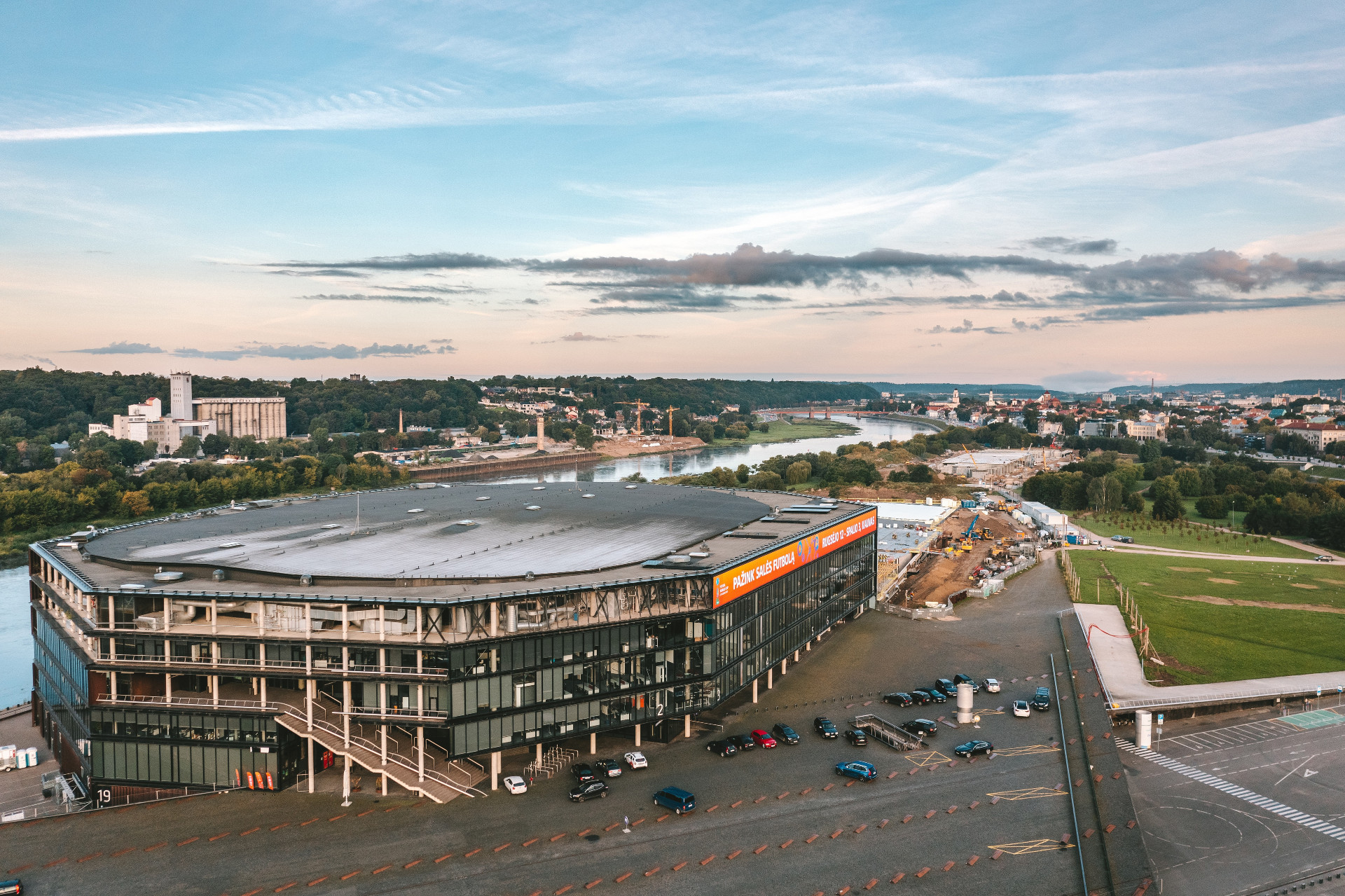
Operos, elektronikos, džiazo, čiurlioniškų motyvų aidas ir daugiau kaip 150 atlikėjų, aktorių ir šokėjų, kuriančių masišką muzikos ir teatrinių elementų kupiną pasirodymą – taip užbaigti Europos kultūros sostinės metus žada paskutinysis Šiuolaikinės Kauno mito trilogijos veiksmas „Sutartis“. „Susitarti gyventi ilgai ir laimingai – to linkėsime kauniečiams, visų Europos miestų gyventojams, ir visiems, buvusiems šios nepamirštamos kelionės dalimi“, – sako „Kaunas 2022“ organizatoriai, lapkričio 26-27 d. paruošę ne vieną staigmeną.
„Šiuolaikinio Kauno mito trilogija – kelionė per tris didžiuosius Europos kultūros sostinės renginius tarsi per tris žmogaus gyvenimo etapus: supratimą, kas esu, savęs priėmimą ir susitarimą būti geresniu sau ir savo bendrapiliečiams, savo miestui“, – unikalų trilogijos konceptą pristato idėjos autorius Rytis Zemkauskas.
Sausį visos Europos akivaizdoje Kaune įvyko kultūrinis „Sukilimas“ – taip pažymėta ambicingiausio miesto istorijoje projekto pradžia. Gegužę miestą užliejusi „Santaka“ nuteikė menu įkrautos vasaros tempui, o „Sutartis“ lapkričio 26-27 dienomis iš tiesų pakvies sudaryti sutartį su savimi ir savo miestu.
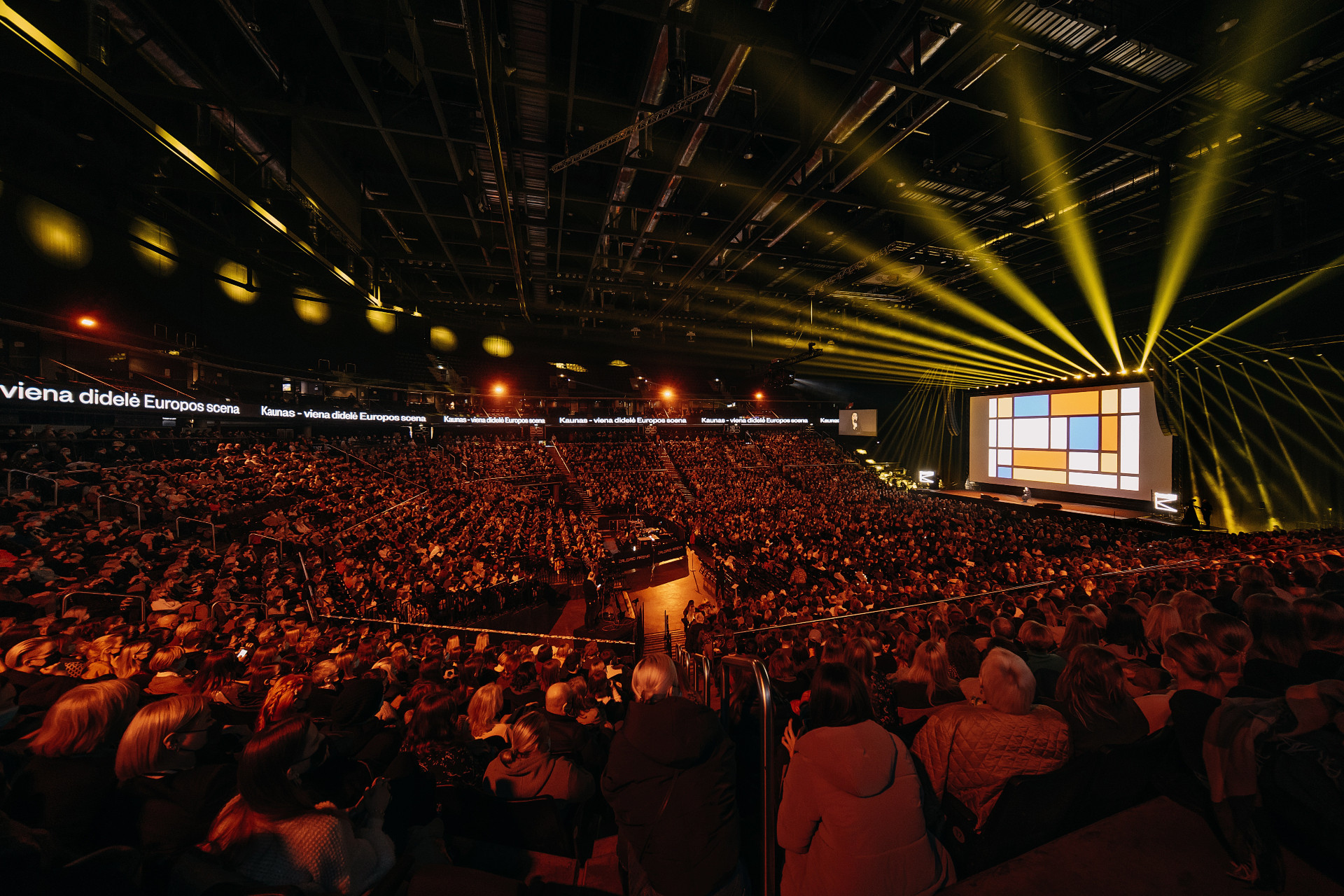
Žinomi vardai ir daugiau nei 150 atlikėjų
Didžiojo „Sutarties“ renginio, vyksiančio „Žalgirio“ arenoje, autoriai – Nacionalinės premijos laureatė Zita Bružaitė, režisierius Gediminas Šeduikis, „Auksinių scenos kryžių“ laureatės dramaturgė Daiva Čepauskaitė bei choreografė Agnija Šeiko. Scenoje pasirodys Kauno bigbendas, Šeiko šokio teatro šokėjai, „Giunter Percussion“, Kauno styginių kvartetas ir kiti. Kartu jie kurs poetišką miesto viziją, pinamą iš faktų, legendų, mitų ir vaizduotės.
Paklausta, kokiam žanrui būtų galima priskirti šį daugiasluoksnį kūrinį, meninės idėjos autorė ir kompozitorė Z. Bružaitė nustebina. „Tai… baletorija. Pati sugalvojau šį terminą, kuris daugeliui kelia šypseną. „Sutartyje“ įpinsime jau atrastų elementų – tai Kauno Žvėris, stichijos, įvairios geografinės nuorodos, užuominos į praėjusį laiką ir dabartį, miesto kūrimą ir gyvenimą jame – ši gija vienija visus tris spektaklius“, – akies krašteliu į visu pajėgumu vykstantį kūrybinį procesą leidžia dirstelėti Z. Bružaitė. Ji prideda, kad „Žalgirio“ arenoje bus galima išgirsti ir pamatyti čiurlioniškų motyvų, – jie bus jungtis tarp šešių atskirų „Sutarties“, kurioje bus ir operos arijų, ir elektronikos, ir džiazo, ir tautinių motyvų bei viso to darnos, dalių.
Kitaip nei du pirmieji Kauno mito trilogijos veiksmai, „Sutartis“ vyks uždaroje erdvėje – anot kompozitorės, arenos tūris suteikia laisvės naujiems drąsiems sprendimams. Z. Bružaitė įsitikinusi, kad kiekvienas bilietą į „Sutartį“ spėjęs įsigyti žiūrovas pamatys ir išgirs itin daug, o jo patirčiai neturės įtakos vėjas, lietus ar kitos stichijos.
Europos kultūros sostinės uždarymo savaitgalį lapkričio 26–27 dienomis Kauną puoš ir įvairiose viešosiose erdvėse įkurdintos šiuolaikinės šviesos instaliacijos, kurios atkeliaus iš kitų Europos miestų ir kultūros sostinių. Sekmadienio vakarą Kauno rajone esančiame Raudondvario dvare įvyks paskutinis „Sutarties“ akcentas, kuris kol kas laikomas paslaptyje.
Bilietai prekyboje pasirodys jau šią savaitę. Visą „Kaunas 2022“ programą rasite www.kaunas2022.eu ar mobiliojoje programėlėje.
